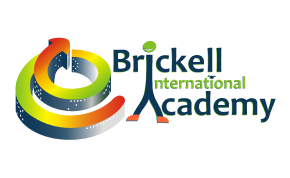
Your child’s psychological, emotional and physical wellbeing

Testimonials
Understanding that their actions and choices have benefits beyond the classroom.

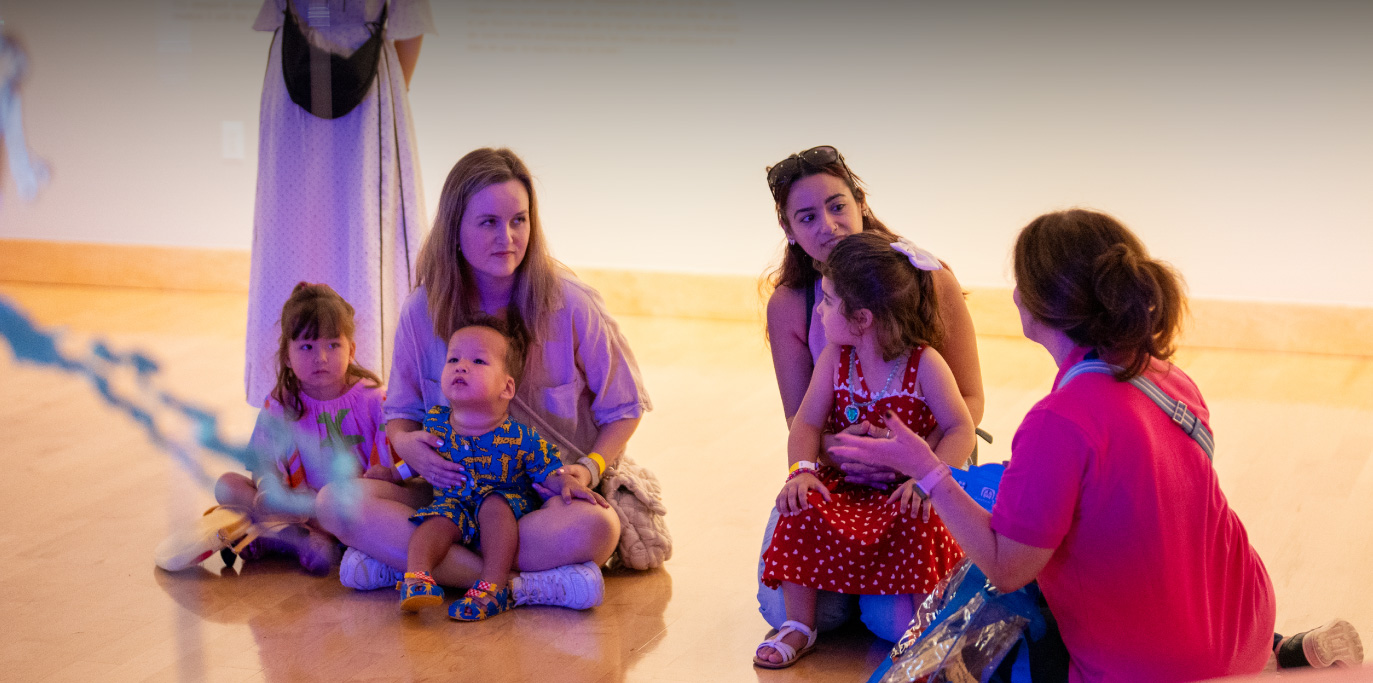

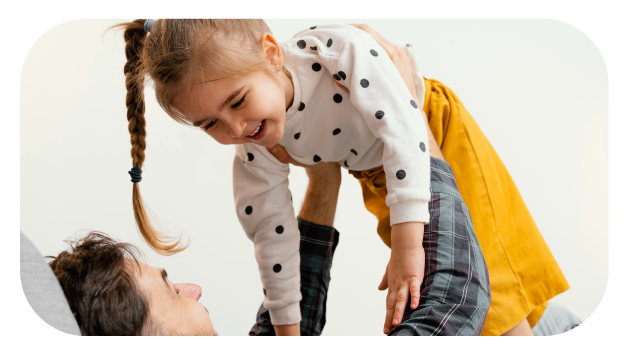





@brickellschool
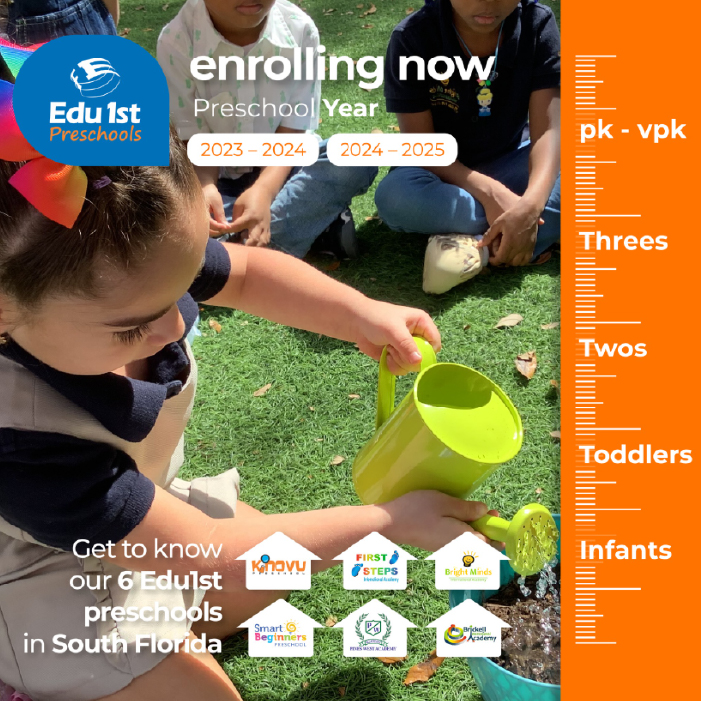
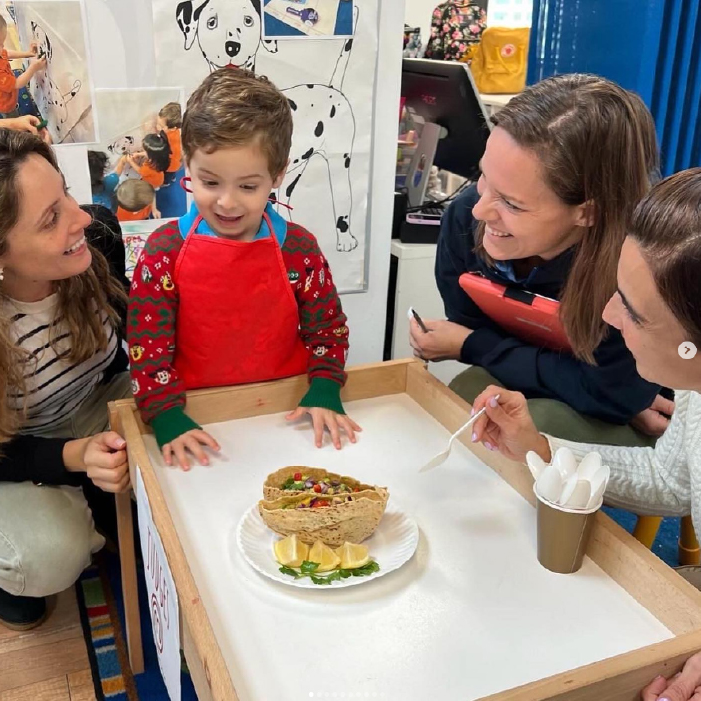
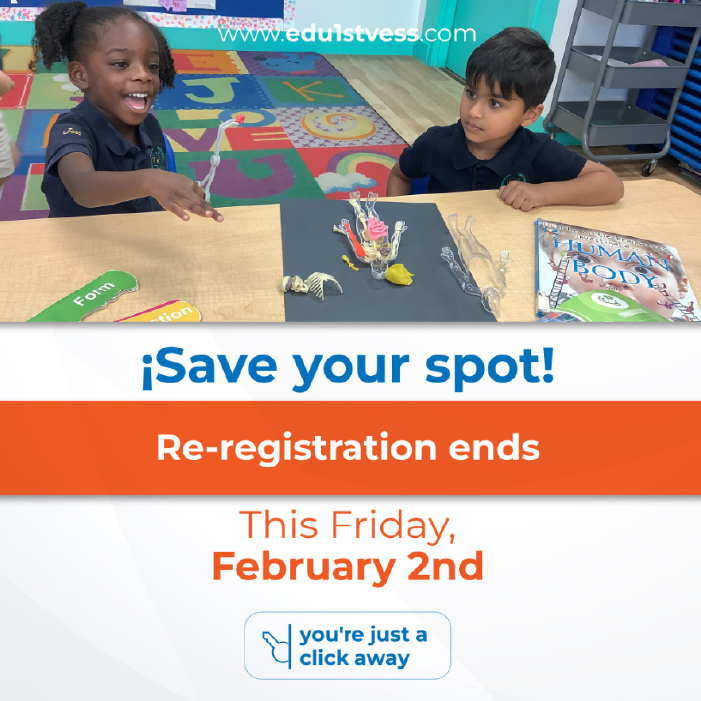
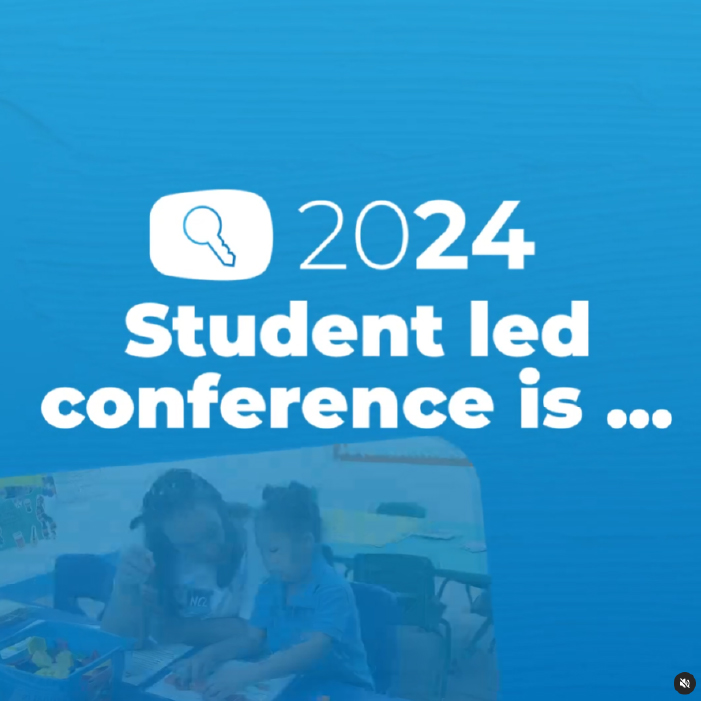
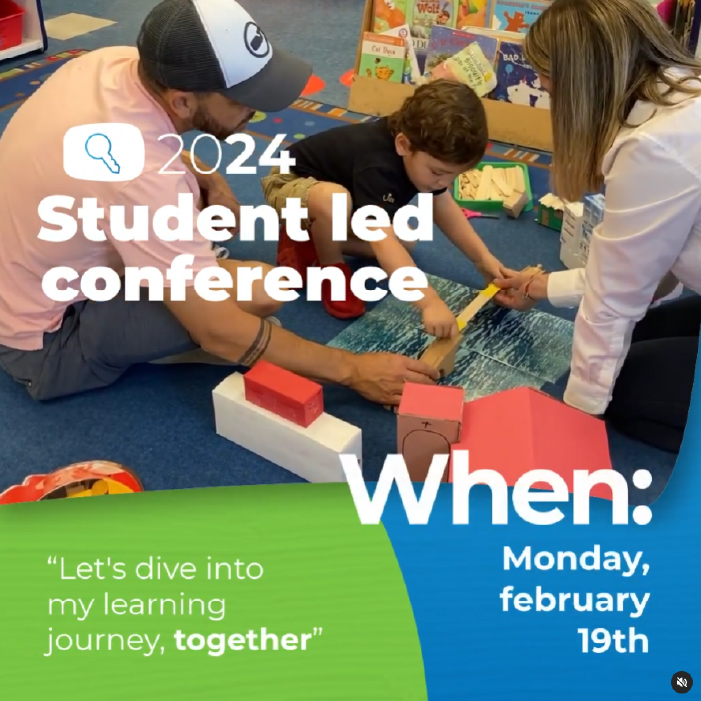
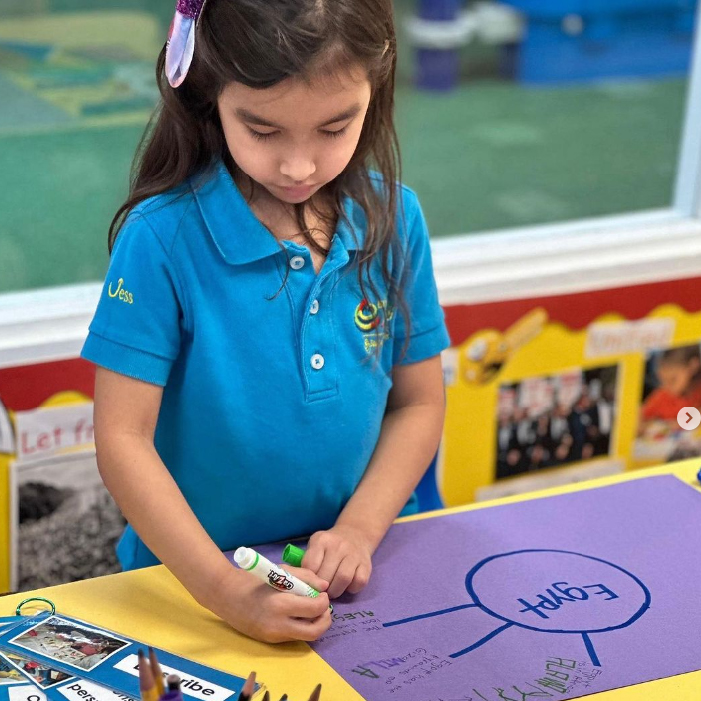
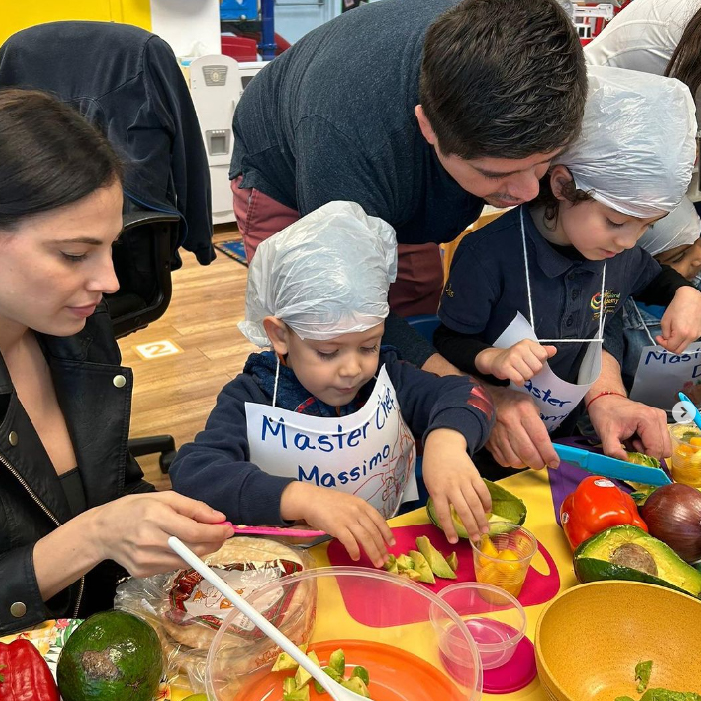
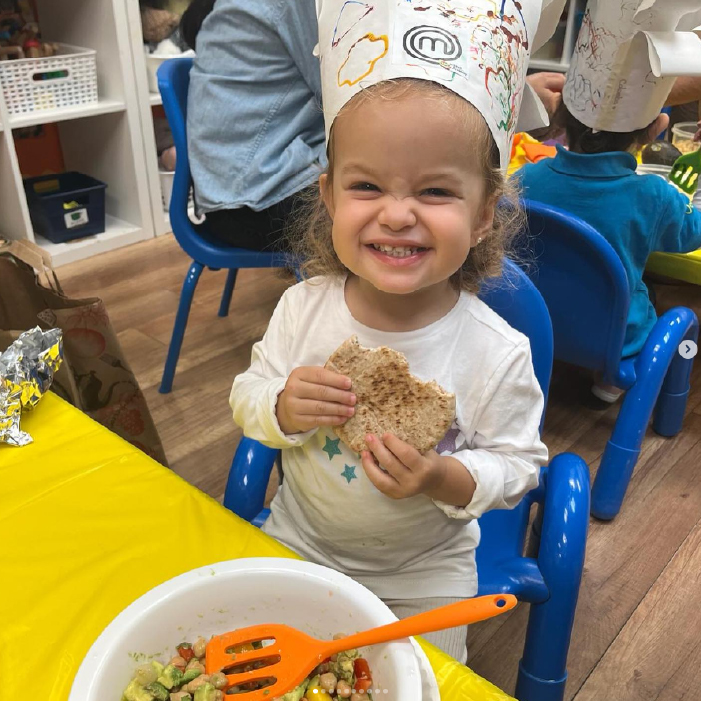









1101 Brickell Ave, North Tower,
8th Floor. Miami, FL. 33131
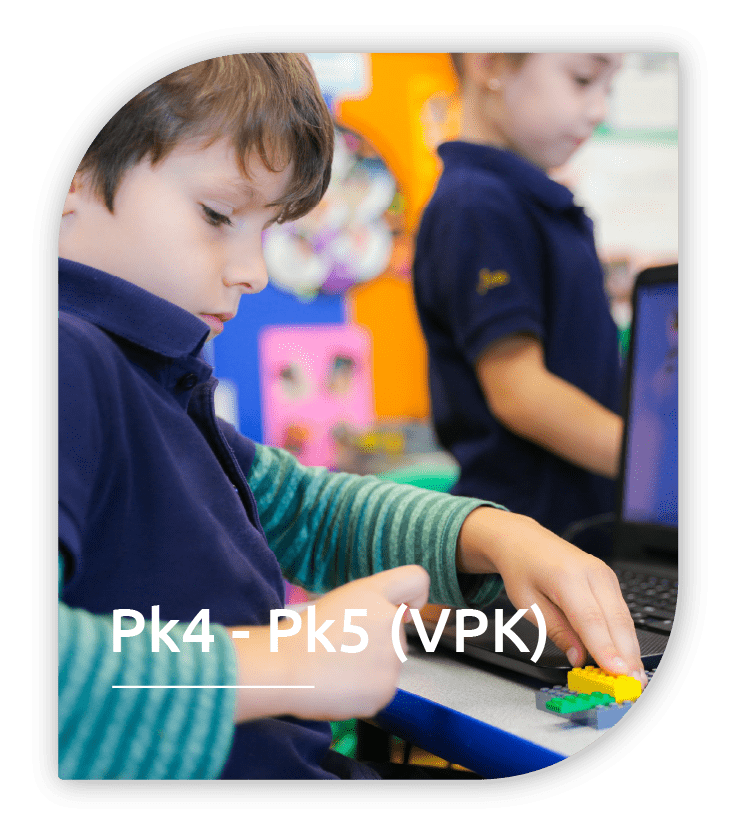
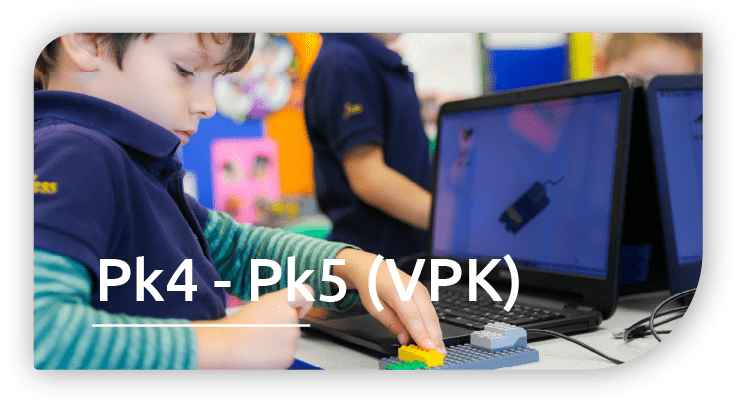
Learning autonomy refers to the skills and dispositions needed to be independent in one’s capacity to learn new things. It is seen by neuroscientists as a key determinant of life-long success and academic success in school. the VESS educational approach focuses not only in learning academic content but in developing the learning autonomy to be efficient learners of future content, wherever they go.
With an advanced capacity to express and understand more complex information, 4 and 5 year olds are absolutely ready to become aware of their own thinking process (also known as metacognition) if the environment and mentors provide the opportunity with the right strategies.
Our educational program teaches academic content through Thinking Strategies that foster metacognition. These neuroscience-proven strategies include Thinking Routines, Concept Maps, and the Thinking Keys.
“Learning comes pretty easy when children understand how their thinking works” explains Ms. Julia, PK3 and PK4/5 teacher.
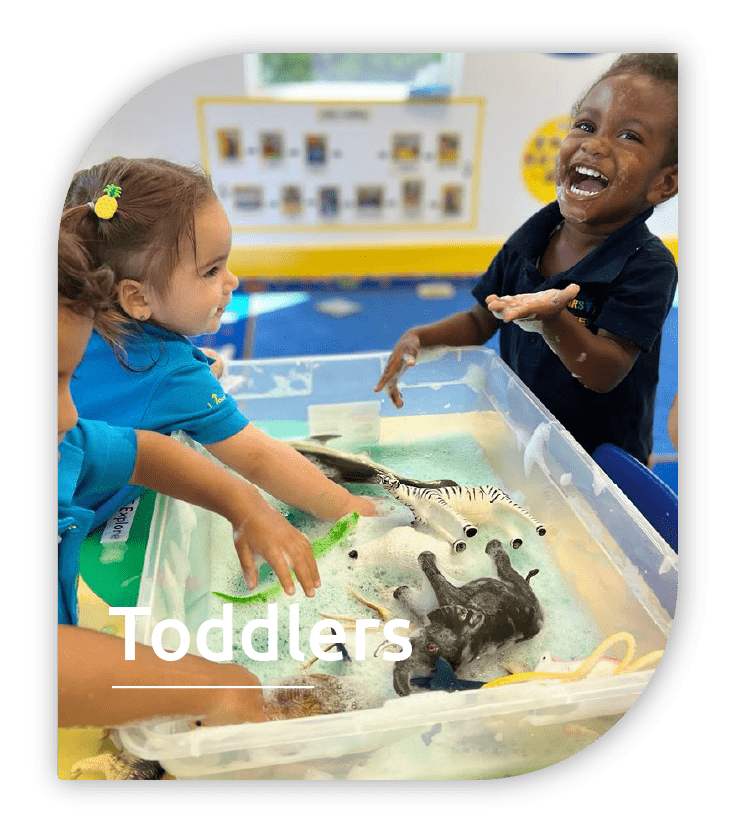
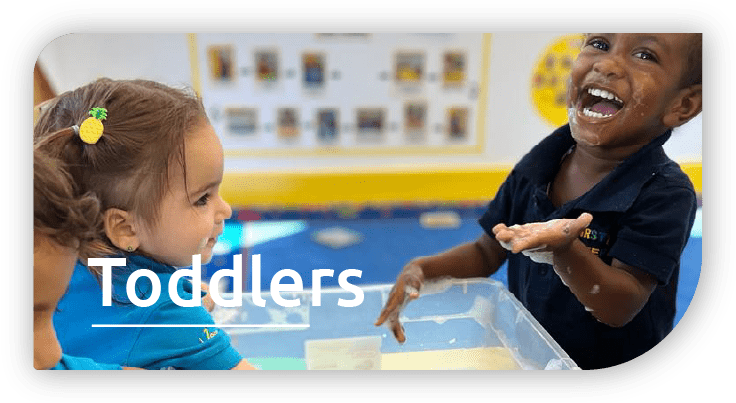
We consider all chidren as unique individuals with multiple developmental needs. We focus on developing the whole child to his or her unique potential. Every experience is a learning experience carefully crafted by our teachers. We focus on multi-sensory exploration, which naturally develops your child holistically. We use a monthly artist, country and “unit of inquiry” to bring the world to the classroom through novel experiences that are exciting to our toddlers, and covers multiple developmental areas simultaneously: mathematical thinking, communication, scientific exploration, and art, as well as emotional education, thinking skills, our VESS Values, and motor skills.
Our Enrichment classes of Yoga, P.E. and Music further promote whole-child development through an area expert.
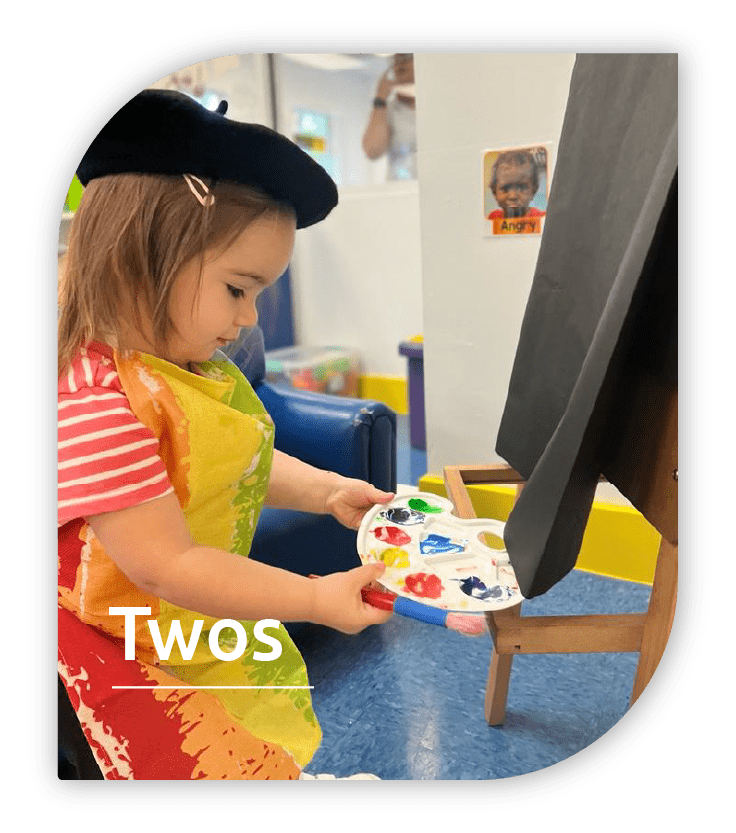
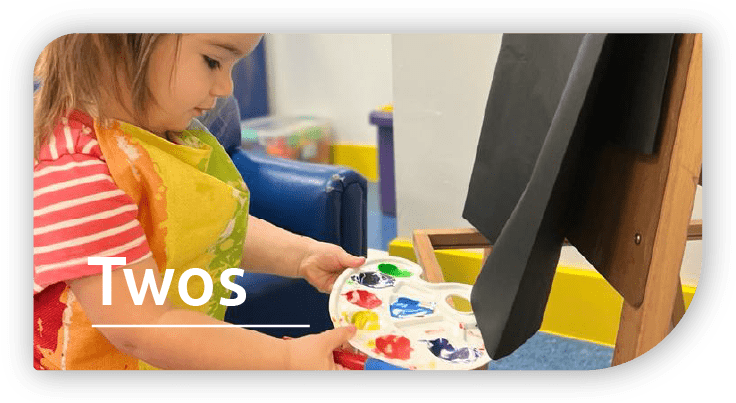
A key goal of our educational program is to nurture autonomous, life long learners, because learning autonomy has been proven to be a key determinant of life success. Learning autonomy starts with sparking curiosity and inquisitiveness – an intrinsic desire to explore, discover and learn. How do we promote inquisitiveness?
• Two year olds are active participants of their classrooms and have a say about the topics to explore
• The Surprise Factor – a neuroscience-proven strategy that focuses on presenting experiences to children in an unexpected and exciting way that invites them to want to explore
• Respecting children’s process and celebrating risk taking: we encourage children to explore at their own pace, plan with their preferences in mind and praise trying something hard or new.
“Surprising a child with a fascinating opportunity to explore generates engagement and emotion, getting the brain ready to really comprehend”, explains Ms. Aura, Edu1st teacher of 15 years
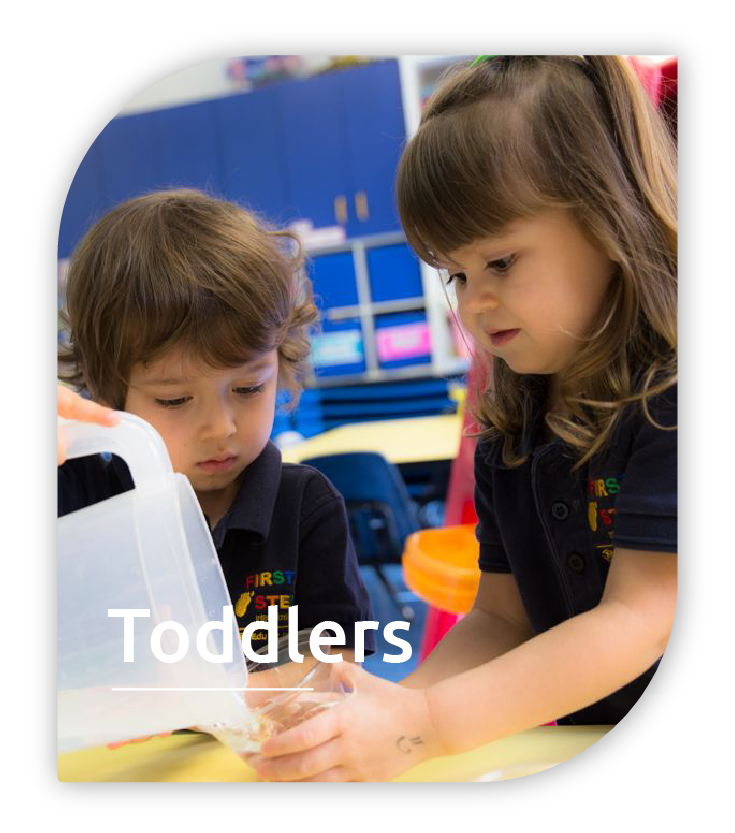
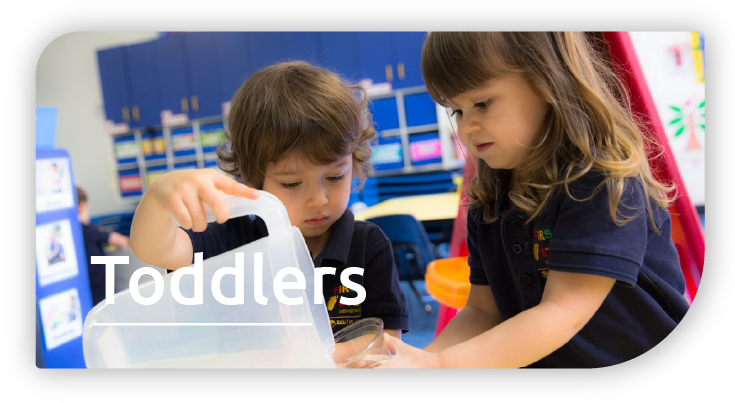
Learning autonomy refers to the skills and dispositions needed to be independent in one’s capacity to learn new things. It is seen by neuroscientists as a key determinant of life-long success and academic success, and it’s development starts at birth. the VESS educational approach focuses on developing children’s learning autonomy to be efficient learners for life.
We focus first on nurturing children’s love for learning – the first step for becoming an autonomous learner – through crafting learning experiences that are meaningful, surprising and fun We use advanced thinking language in our daily interactions to promote higher-level thinking and embeed this language in children’s thinking process
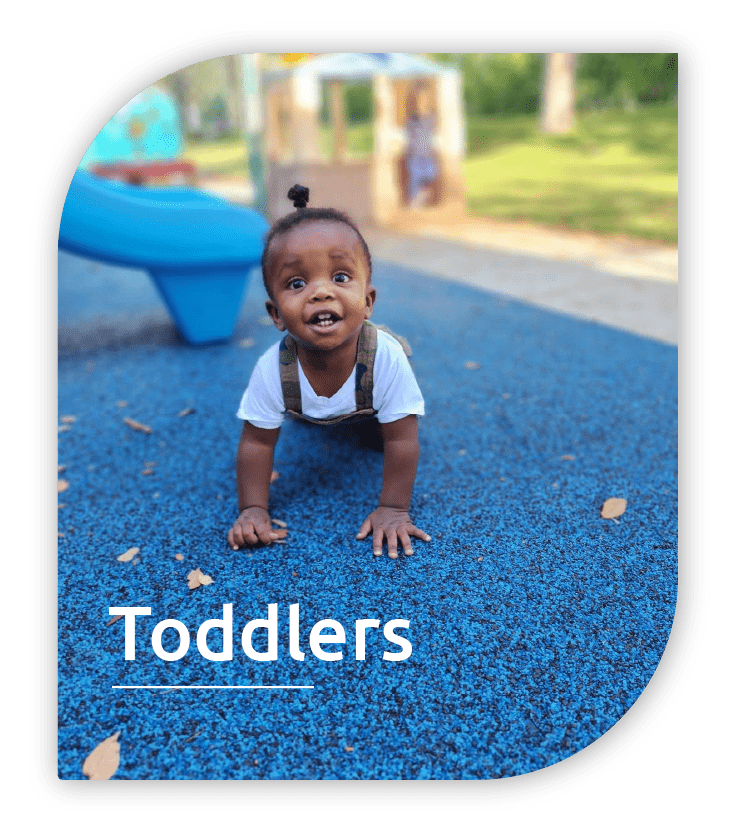
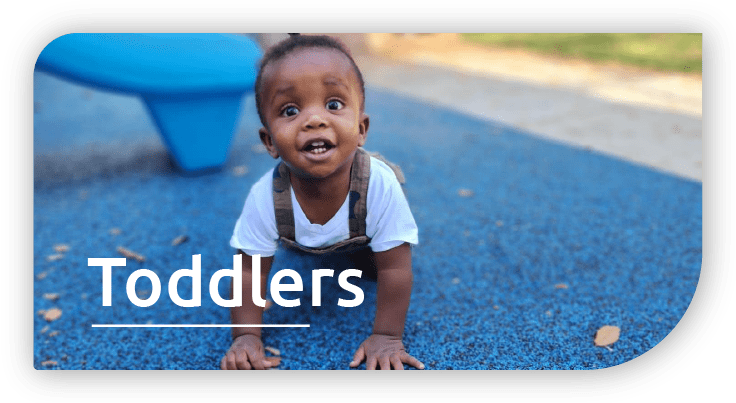
Toddler years are the foundation to instill in children the habits and values needed to excel in a global society
Toddlers in our school are seen as active participants of our community and global citizens. our teachers focus on making them participant of classroom responsibilities, assign roles, and encourage teamwork – whether it’s cleaning tables after lunch or passing out the placemats, we learn about community through our daily interactions as collaborators.
Our monthly country and monthly unit expose children to the inmensity of our world, increasing their awareness of how others live and think.
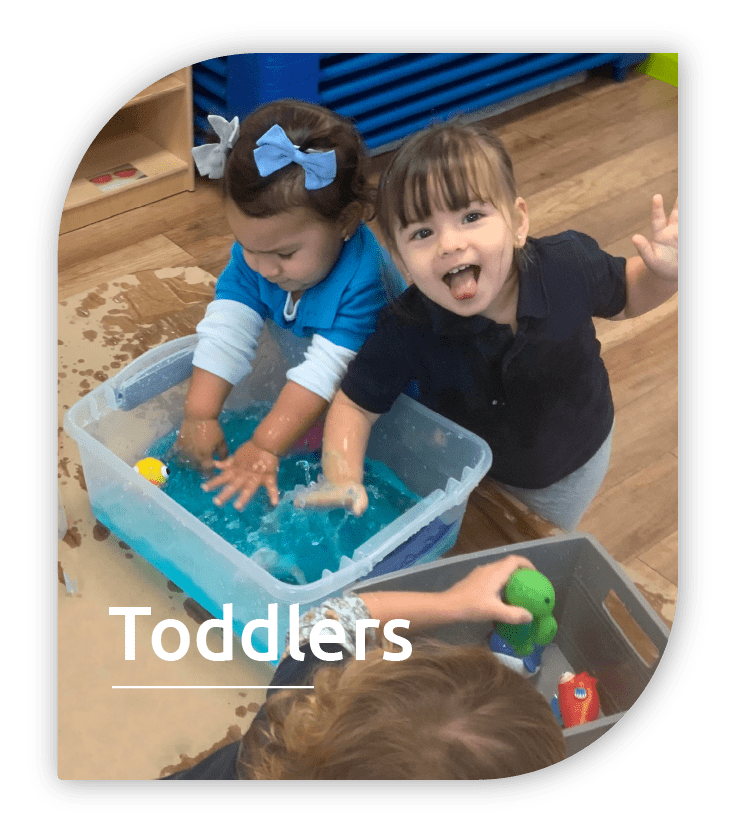
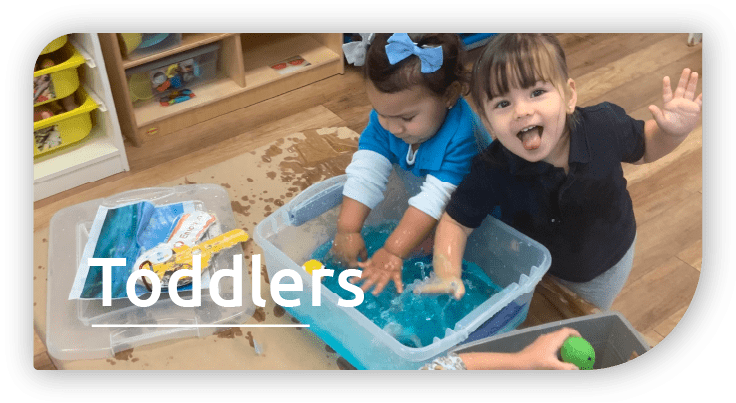
Creativity and Innovation are at the core of the VESS educational approach. Every moment and learning experience focuses on promoting creativity.Through our Artist of the Month, for example,toddlers explore artists’ stories, techniques, and how they use colors, shapes and lines uniquely to express their emotions. Our goal is to inspire our toddlers to express through art, innovating their own art techniques and ways of telling us their stories.
In our classrooms, children have access throughout the classroom to art and science materials that they can create with, and are heard when proposing new ideas. Developing children’s citizenship, inquisitiveness, scientific thinking and learning autonomy (see other sections) fosters innovation as children feel capable of contributing in their community.
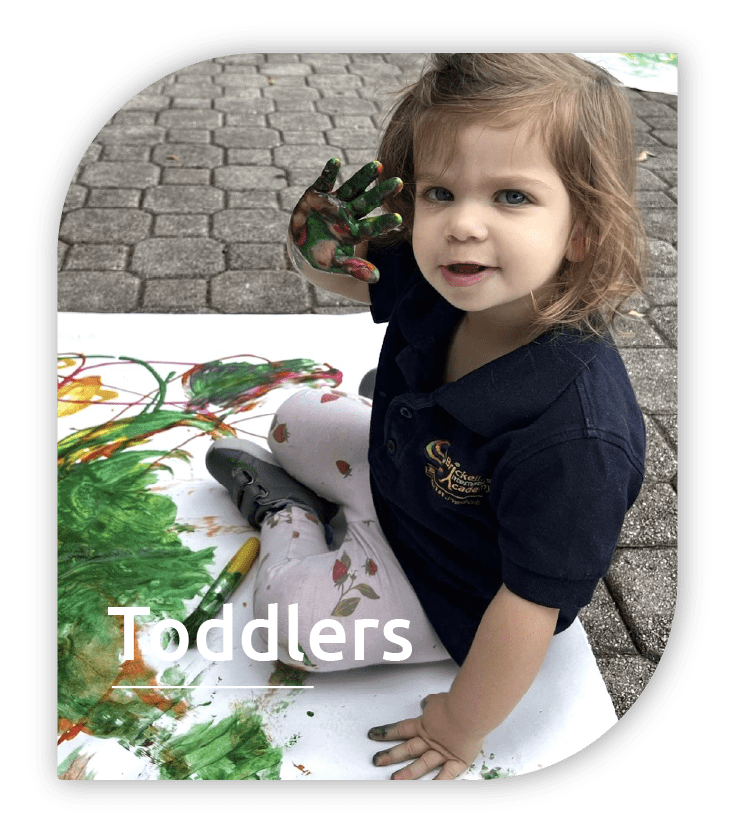
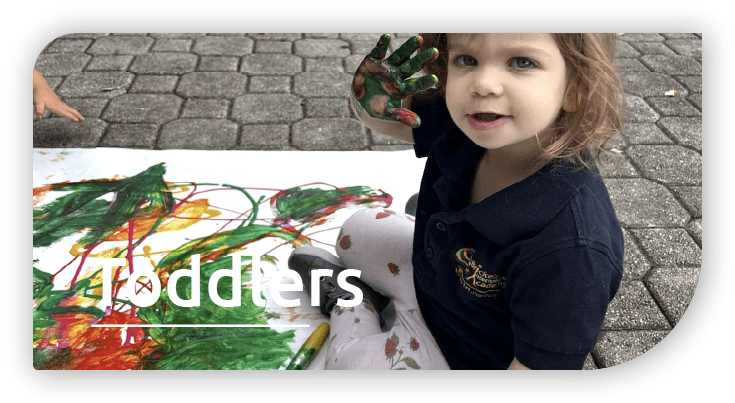
Our VESS curriculum fosters development through strategies that promote higher level thinking skills.
Higher-level thinking refers to our ability to do certain mental processes more efficiently, making us better learners. This ability is fostered by developing what neuro-scientists have called Habits of Mind – a mental process that, with practice, we do routinely and naturally, turning it into a mental habit. The VESS curriculum develops 17 Habits of Mind in children. Some of these include Inquire, Innovate, Consider Perspectives, Manage Impulsivity, Reflect to Learn, Synthesize, Predict, amongst many others.
The first aspect of developing higher-level thinking is a DESIRE TO LEARN, so that our first goal is to foster excitement for learning in children.
Once children are excited to know more, our teachers use neuroscience-proven Thinking Strategies to ask deep questions and get children’s thinking going. Doing this all day, every day, creates higher-level thinking routines that lead to children’s development of our Habits of Mind, and a true ability to be better thinkers and learners.
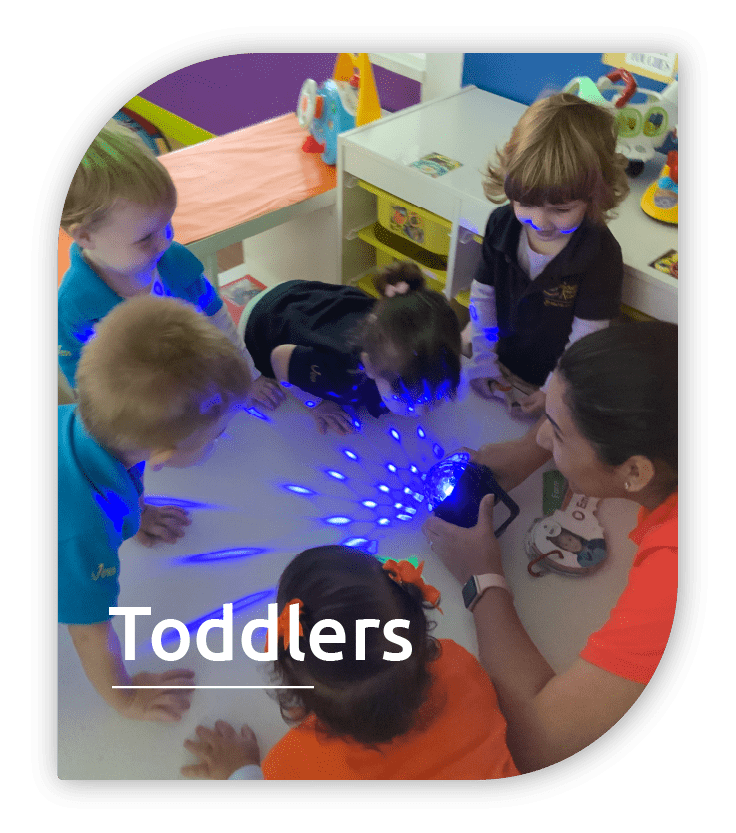
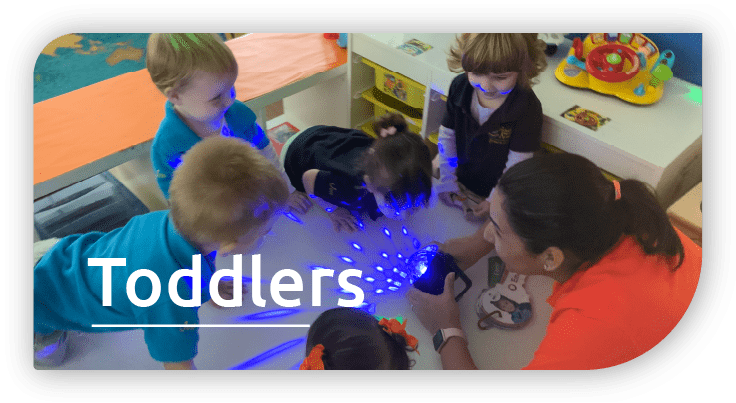
Toddlers are in constant discovery of how the world works. With a school environment that values children’s questions about the world comes an opportunity to promote a scientific mindset. Teachers actively observe our toddlers’ interests, plan experiences accordingly and guide them to explore these through a multitude of strategies that develop advanced scientific and mathematical skills. Scientific exploration also teach children about risk taking, persistence, teamwork, careful observation, and objectivity. Sensory exploration in our classroom is a daily experience!
• The Wheel of Wonder – an age-appropriate version of the scientific method that guides children through a series of steps during an experiment: I wonder; I think; I try; I observe; I record; I discover.
• Thinking Routines – such as our “X routine”, which asks children to compare materials through their senses
• Weekly Cooking and STEM projects – that are planned based on toddlers’ interests
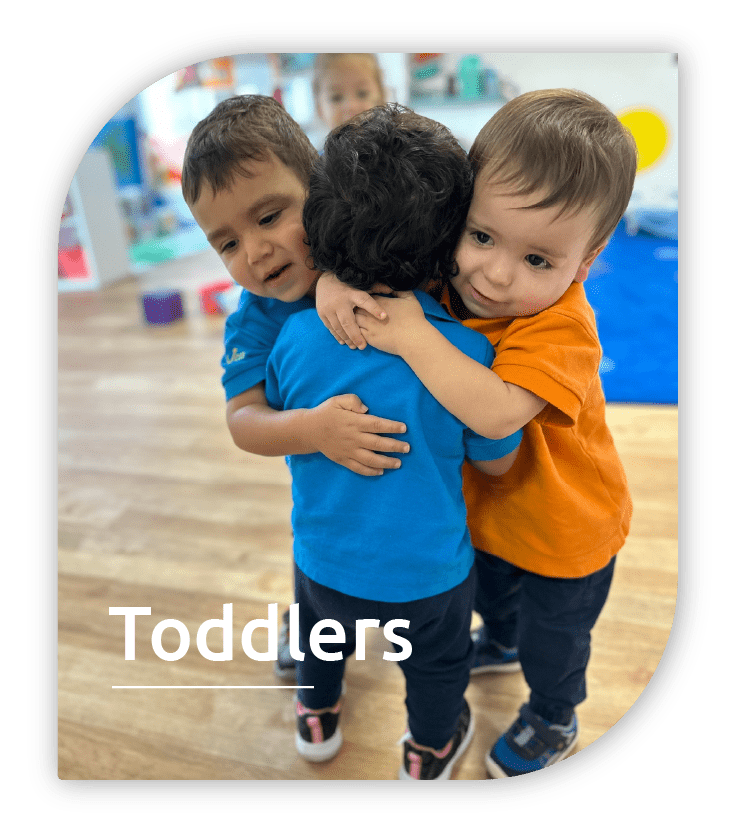
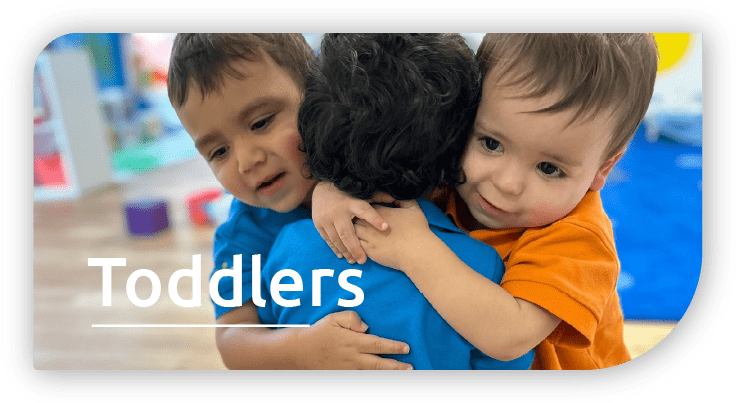
A key goal of our educational program is to nurture autonomous, life long learners, because learning autonomy has been proven to be a key determinant of life success. Learning autonomy starts with sparking curiosity and inquisitiveness, from birth! How do we promote inquisitiveness in toddlers?
• Toddlers are active participants of their classrooms and have a say about the topics to explore – teachers observe and listen carefully, adapting their planned experiences to their preferences
• The Surprise Factor – a neuroscience-proven strategy that focuses on presenting experiences to children in an unexpected and exciting way that invites them to want to explore
• Respecting children’s process and celebrating risk taking: we encourage toddlers to explore at their own pace, plan with their preferences in mind and praise trying something hard or new.
“Surprising a child with a fascinating opportunity to explore generates engagement and emotion, getting the brain ready to really comprehend”, explains Ms. Aura, Edu1st teacher of 15 years
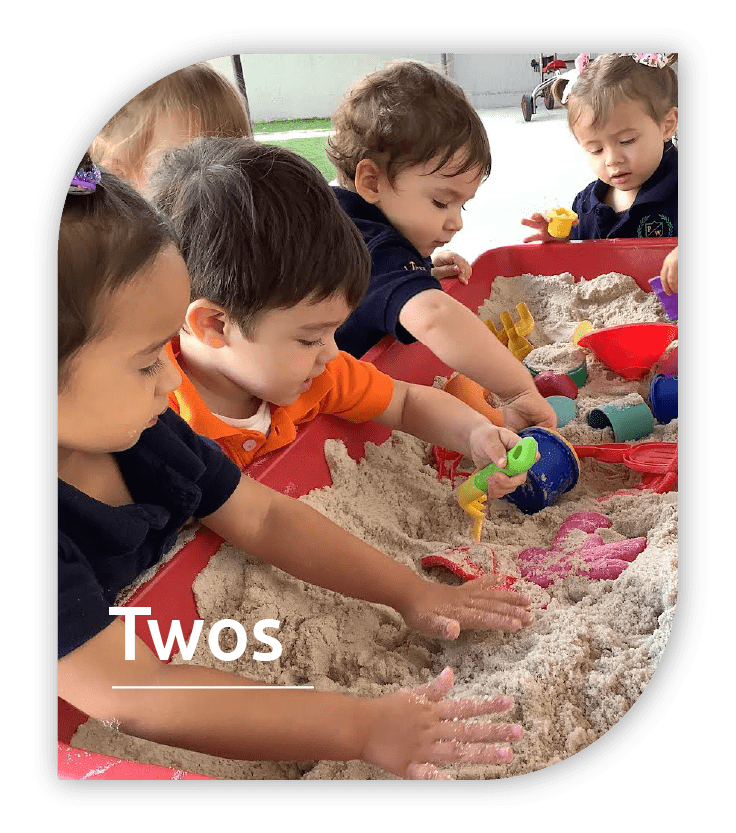
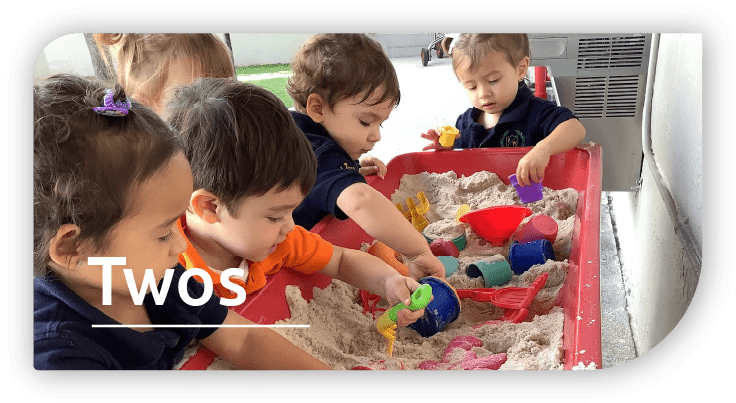
2 year olds are in constant discovery of how the world works. With a school environment that values children’s questions about the world comes an opportunity to promote a scientific mindset. Teachers actively listen to children’s questions and interests and guide them to explore these through a multitude of strategies that develop advanced scientific and mathematical skills. Scientific processes also teach children about risk taking, persistence, teamwork, careful observation, and objectivity. They also promote pre-literacy skills, as children are eager to express and write about what they have discovered. Some of our strategies used include:
• The Wheel of Wonder – an age-appropriate version of the scientific method that guides chuildren through a series of steps during an experiment: I wonder; I think; I try; I observe; I record; I discover.
• Thinking Routines – such as our “X routine”, which asks children to compare materials through their senses; or “I See, I think, I wonder”, which guides children to reason with evidence about their observations.
• Bar and Pie graphs – introduce children to the concepts of data analysis and data organization
• Weekly Cooking and STEM projects – that are planned based on questions that children ask in the classroom, or previously-expressed interests
by focusing on children’s interests, promoting science, experimentation, mathematics and deep thinking is simple, as children WANT to learn.
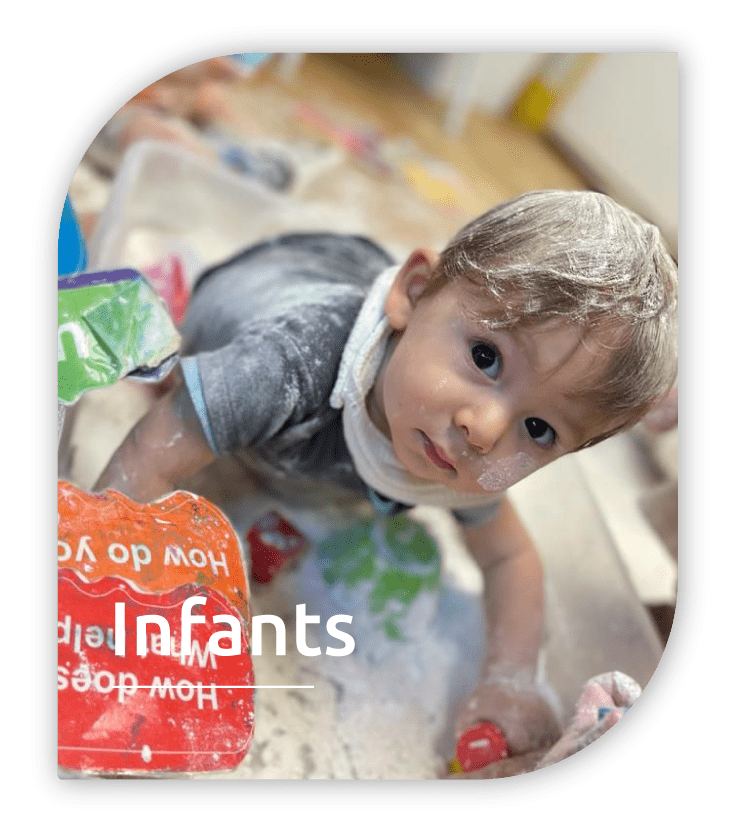
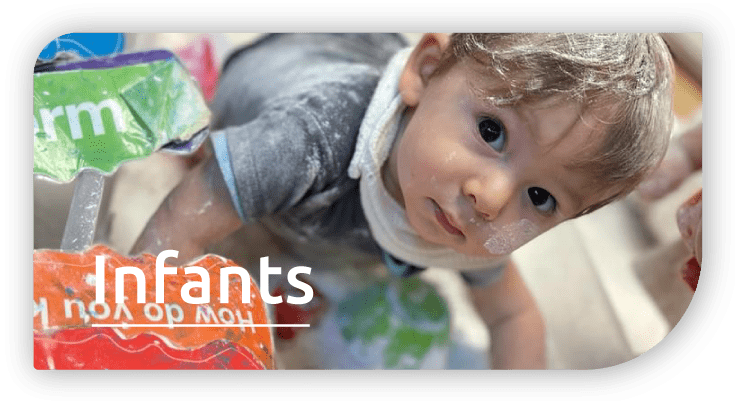
Learning autonomy refers to the skills and dispositions needed to be independent in one’s capacity to learn new things – and its development starts at birth! It is seen by neuroscientists as a key determinant of life-long success.
the VESS educational approach focuses on developing children’s learning autonomy to be efficient learners for life.
We focus first on nurturing children’s love for learning – the first step for becoming an autonomous learner – through crafting learning experiences that are meaningful, surprising and fun We use advanced thinking language in our daily interactions to promote higher-level thinking and embeed this language in babies’ thinking process , which will become habitual vocabulary as they learn to speak
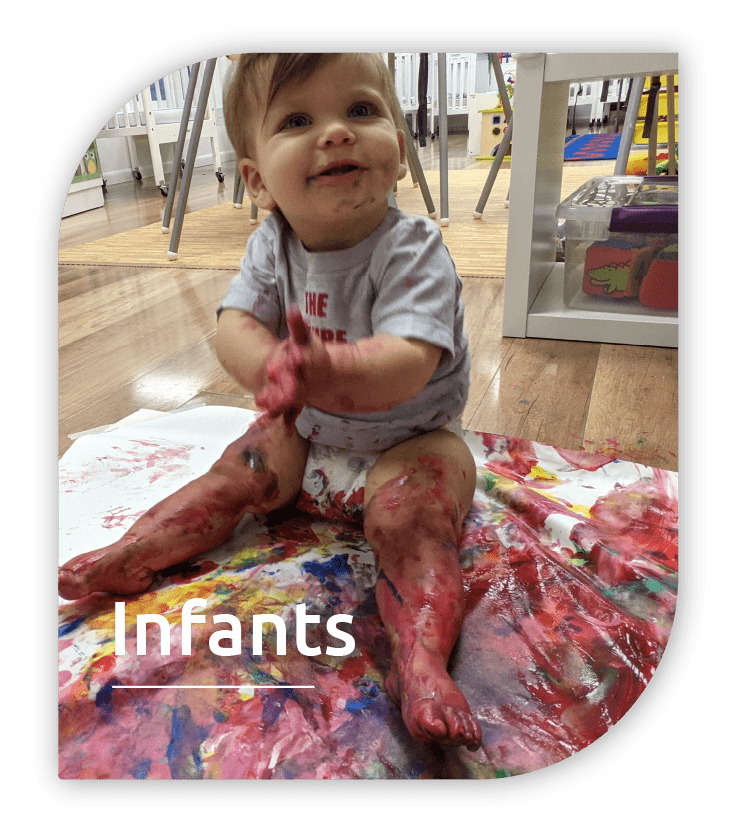
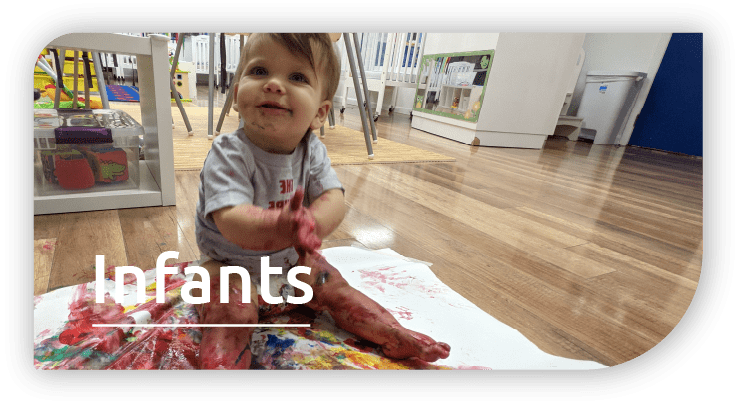
All children in our school are seen as global citizens, including our babies. Our babies’ voices are heard as teachers are in tune to their needs, wants, and preferences, and respond to them; this is the first step in developing communication skills, self esteem, and embeeding an understanding in our babies that they are valuable members of our world, capable of adding immense value!
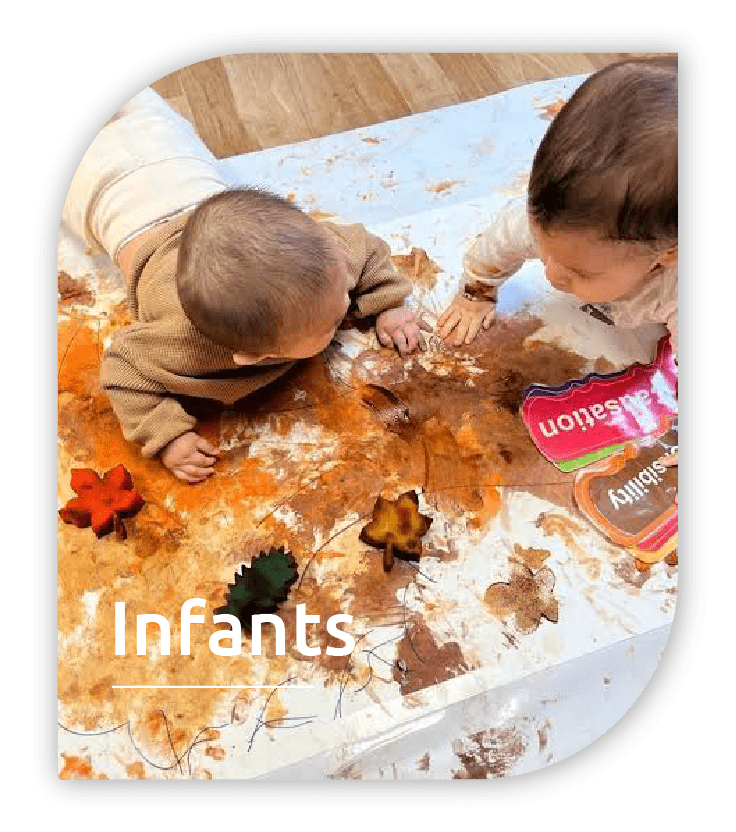
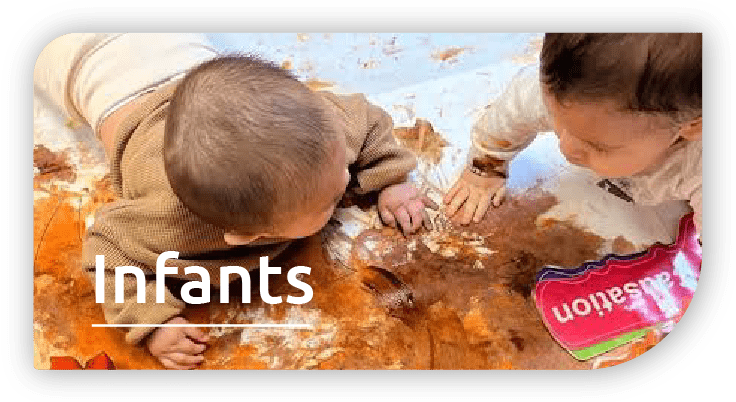
Creativity and Innovation are at the core of the VESS educational approach. Every moment and learning experience focuses on promoting creativity.Through our Artist of the Month, for example,babies are exposed to artists’ stories, techniques, and how they use colors, shapes and lines uniquely to express their emotions. Our goal is to inspire our babies to express through art, and to develop an understanding that art is a language for them to express through.
In our classrooms, babies have access to age-appropriate art and science materials that they can create with. Teachers are in tune with babies’ expressed needs and interests, carefully crafting opportunities to create that are exciting for babies.
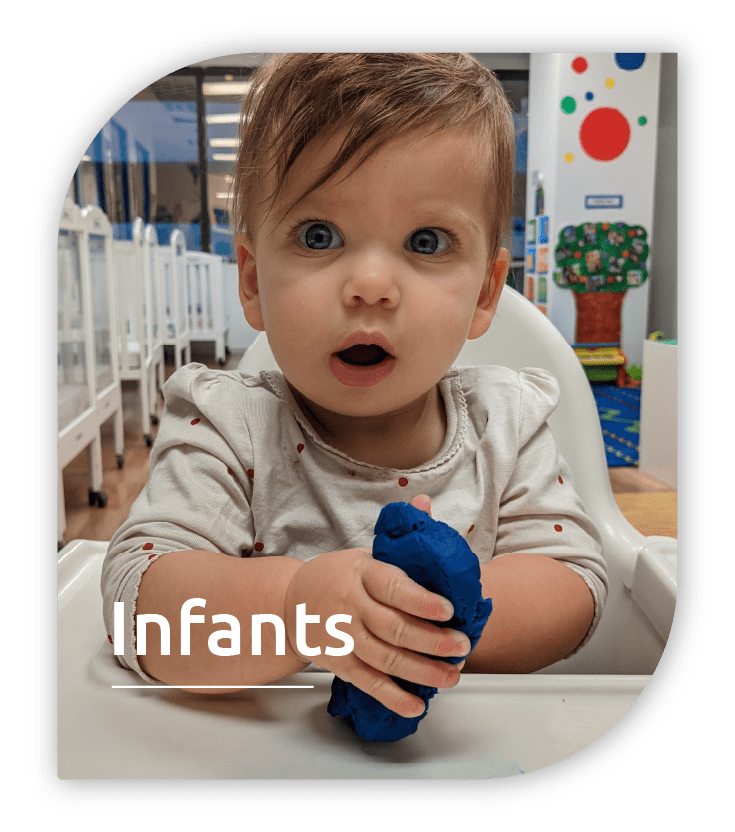
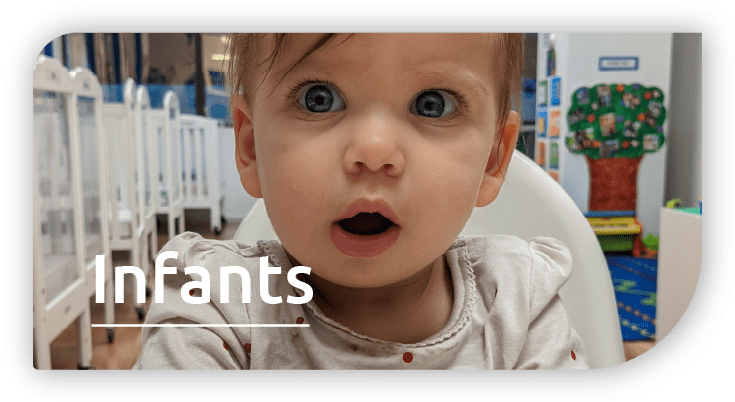
Our VESS curriculum fosters development through strategies that promote higher level thinking skills.
Higher-level thinking refers to our ability to do certain mental processes more efficiently, making us better learners. This ability is fostered by developing what neuro-scientists have called Habits of Mind – a mental process that, with practice, we do routinely and naturally, turning it into a mental habit. The VESS curriculum develops 17 Habits of Mind in children. Some of these include Inquire, Innovate, Consider Perspectives, Manage Impulsivity, Reflect to Learn, Synthesize, Predict, amongst many others.
The first aspect of developing higher-level thinking is a DESIRE TO LEARN, so that our first goal is to foster excitement for learning in children.
Once children are excited to know more, our teachers use neuroscience-proven Thinking Strategies to ask deep questions and get children’s thinking going. Doing this all day, every day, creates higher-level thinking routines that lead to children’s development of our Habits of Mind, and a true ability to be better thinkers and learners.
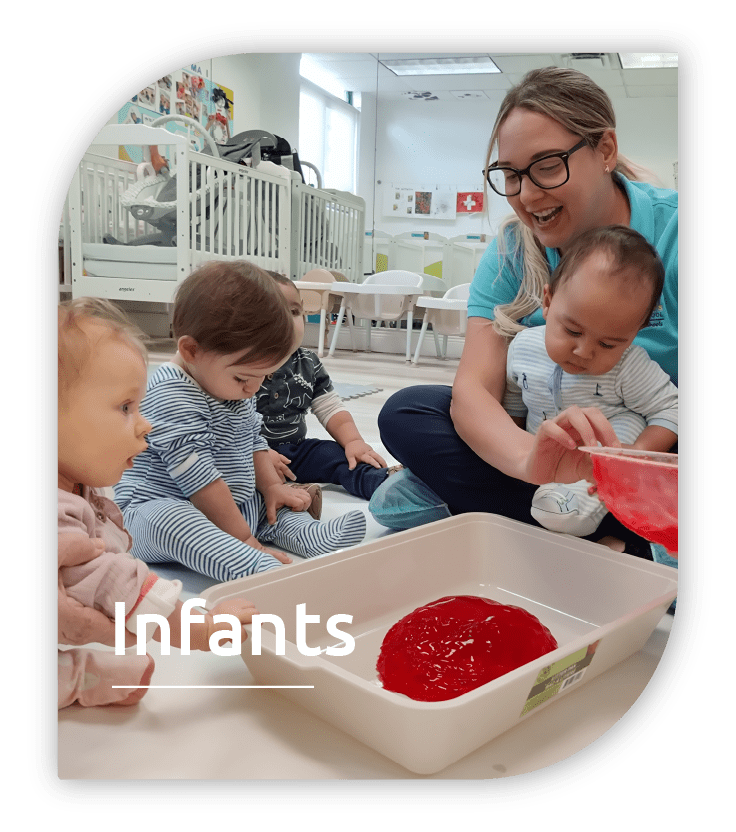
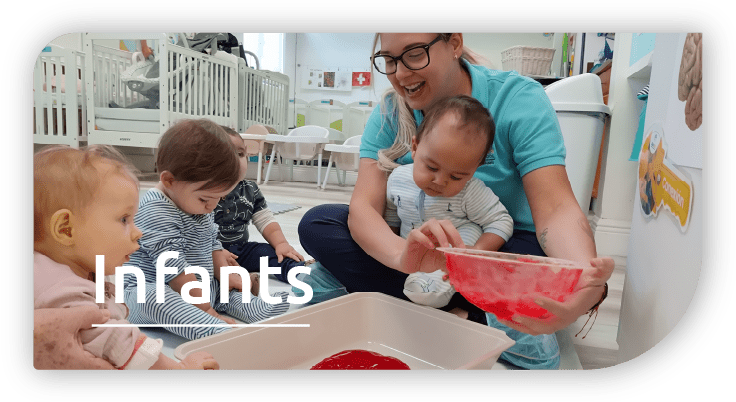
We consider all babies as unique individuals with multiple developmental needs. We focus on developing the whole child to his or her unique potential. Every experience is a learning experience carefully crafted by our teachers. We focus on multi-sensory exploration, which naturally develops your baby holistically. We use a monthly artist, country and “unit of inquiry” to bring the world to the classroom through novel experiences that are exciting to our babies, and covers multiple developmental areas simultaneously: mathematical thinking, communication, scientific exploration, and art, as well as emotional education, thinking skills, our VESS Values, and motor skills.
Our Enrichment classes of Yoga, P.E. and Music further promote whole-child development through an area expert.
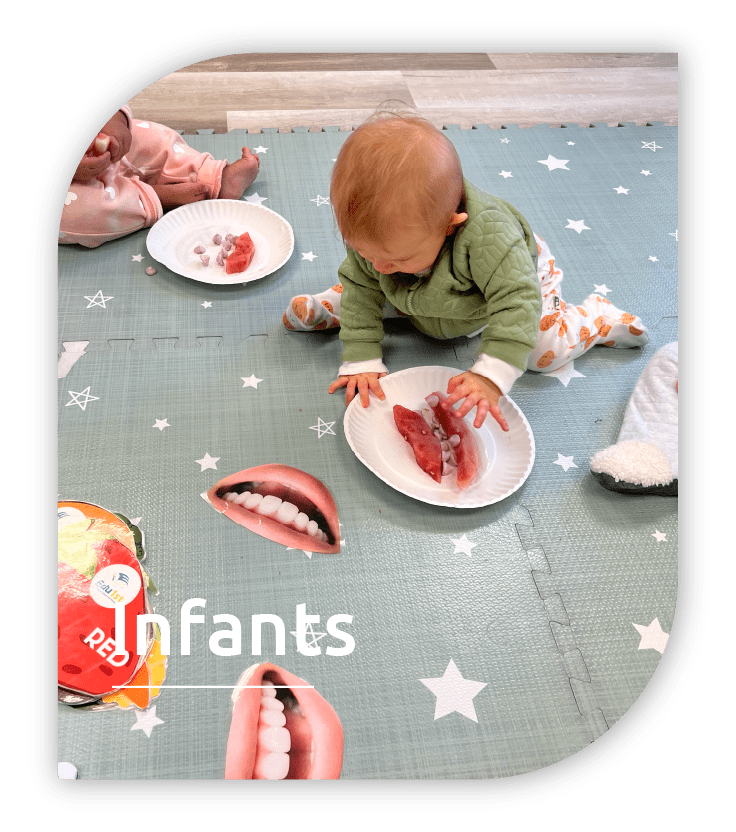
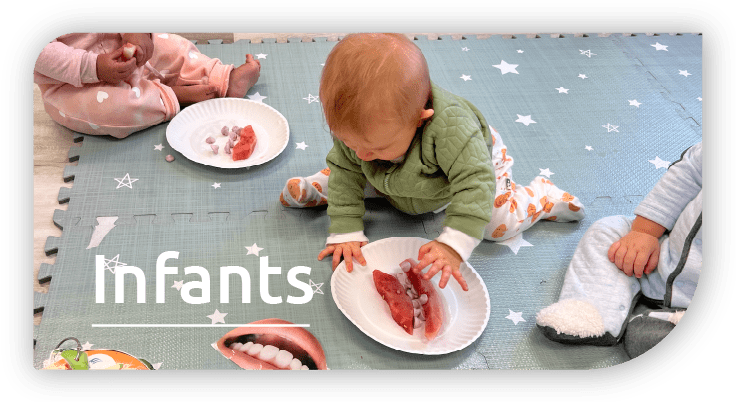
Babies are in constant discovery of how the world works. Teachers actively observe babies’ interests, plan experiences accordingly and guide them to explore these through their senses. They model advanced thinking language to describe the experiences babies are living to help them make sense of what they are experiencing. Sensory exploration is a naturally scientific process that also develops risk taking, persistence, careful observation, and objectivity, and in our classroom, it is a daily experience!
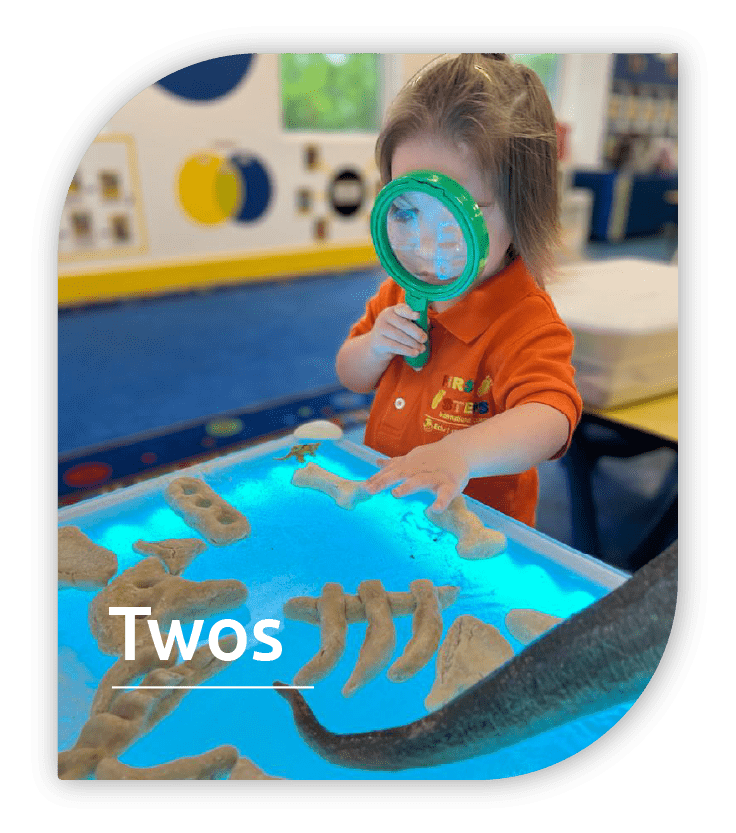
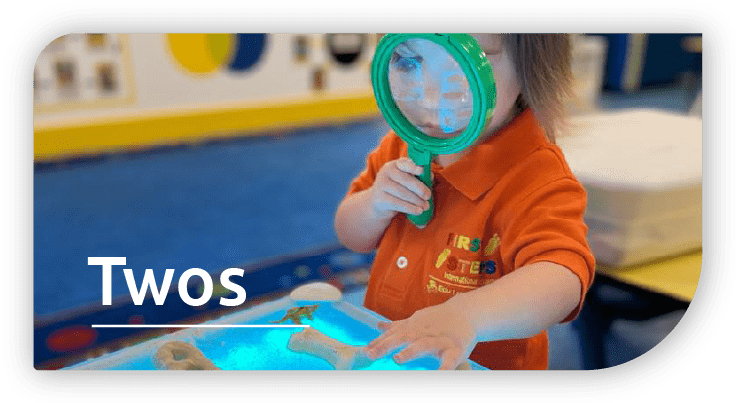
We consider all chidren as unique individuals with multiple developmental needs. We focus on developing the whole child to his or her unique potential. Each learning experience is based on our monthly artist, country and unit, and covers multiple developmental areas simultaneously, including mathematical thinking, communication, scientific exploration, and art, but also emotional education, thinking skills, our VESS Values, and motor skills. Doing so presents these areas to children how they appear in the real world, and allows them to understand how all areas relate.
Our Enrichment classes of Yoga, P.E. and Music further promote whole-child development through an expert in the area.
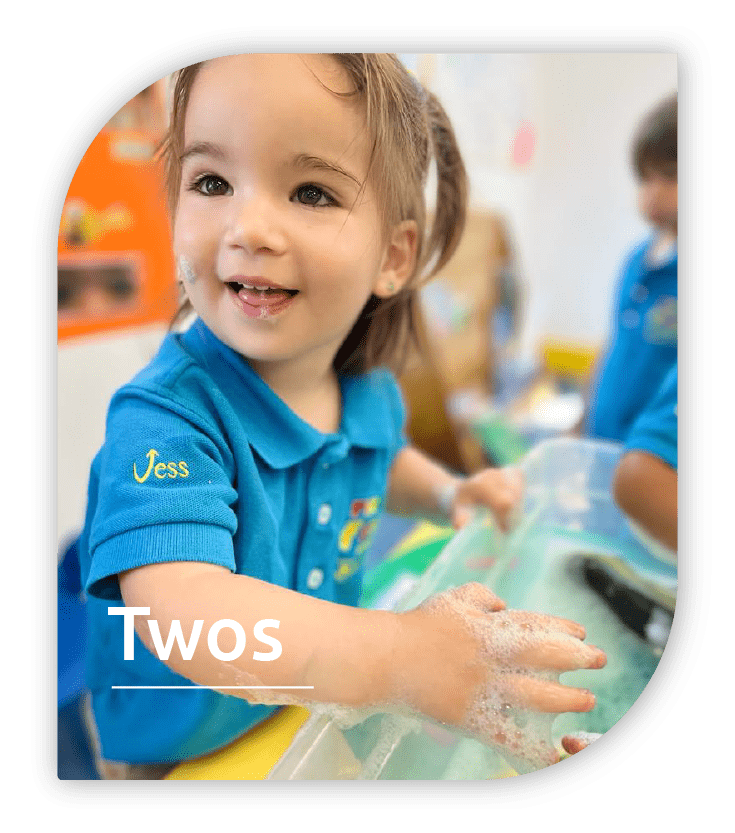
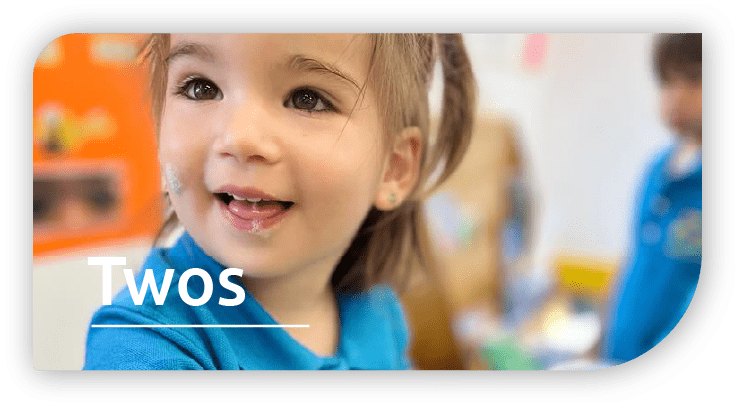
Our VESS curriculum fosters development through strategies that promote higher level thinking skills.
Higher-level thinking refers to our ability to do certain mental processes more efficiently, making us better learners. This ability is fostered by developing what neuro-scientists have called Habits of Mind – a mental process that, with practice, we do routinely and naturally, turning it into a mental habit. The VESS curriculum develops 17 Habits of Mind in children. Some of these include Inquire, Innovate, Consider Perspectives, Manage Impulsivity, Reflect to Learn, Synthesize, Predict, amongst many others.
The first aspect of developing higher-level thinking is a DESIRE TO LEARN, so that our first goal is to foster excitement for learning in children.
Once children are excited to know more, our teachers use neuroscience-proven Thinking Strategies to ask deep questions and get children’s thinking going. Doing this all day, every day, creates higher-level thinking routines that lead to children’s development of our Habits of Mind, and a true ability to be better thinkers and learners.
.
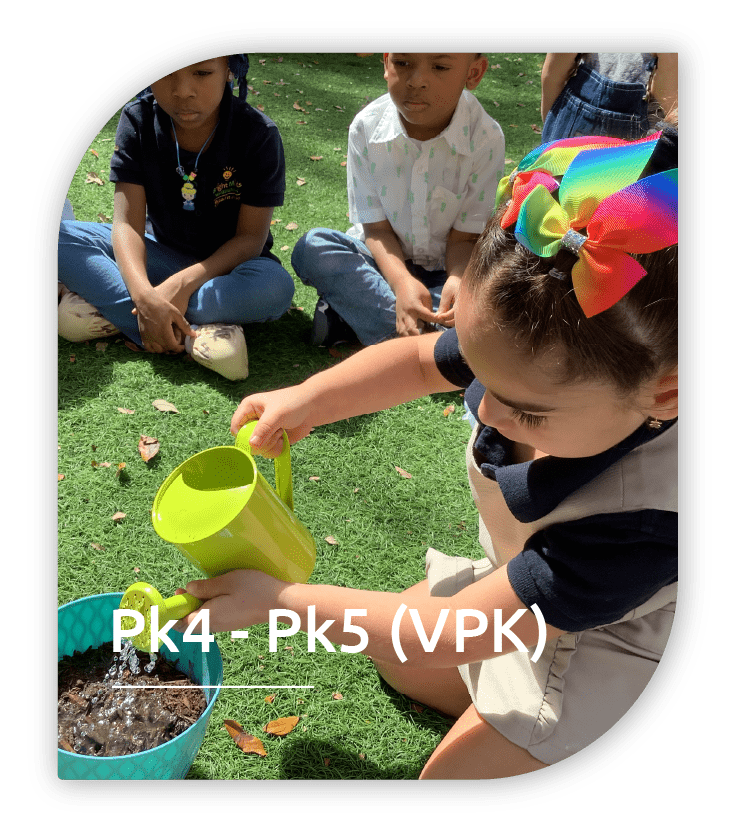
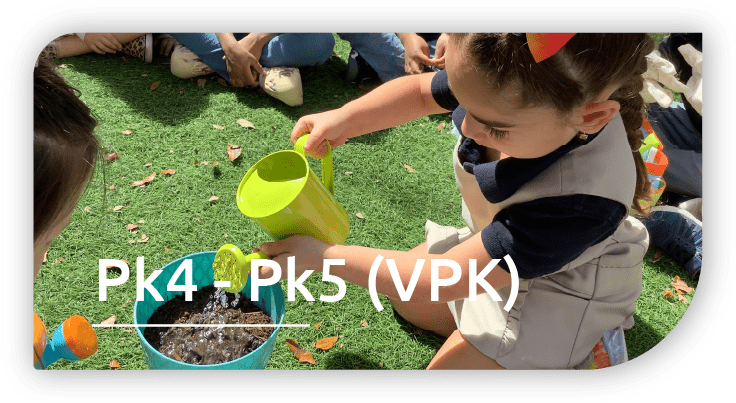
Children are active participants of our school community and are seen as global citizens capable of adding value to our world. Our PK4-5 program strongly encourages independence, collaboration, and friendship, crucial skills for life in elementary school. Our teachers focus on making them participant of classroom responsibilities, assign roles, and encourage teamwork. Daily group reflection about learning experiences is encouraged, in which teachers guide reflection through questions; children’s voices are heard and everyone participates in problem solving.
Through our “country of the month” and “unit of the month” children are exposed to the inmensity of our world, increasing their awareness of how others live and think, promoting empathy, tolerance, and consideration of multiple perspectives. Through various Thinking Strategies, teachers guide children to find solutions to problems affecting the world or their direct communities.
An ultimate goal of our educational program is children capable of considering multiple perspectives and adding value wherever they go – children who are Citizens of the World, and therefore very ready to take over Elementary School!
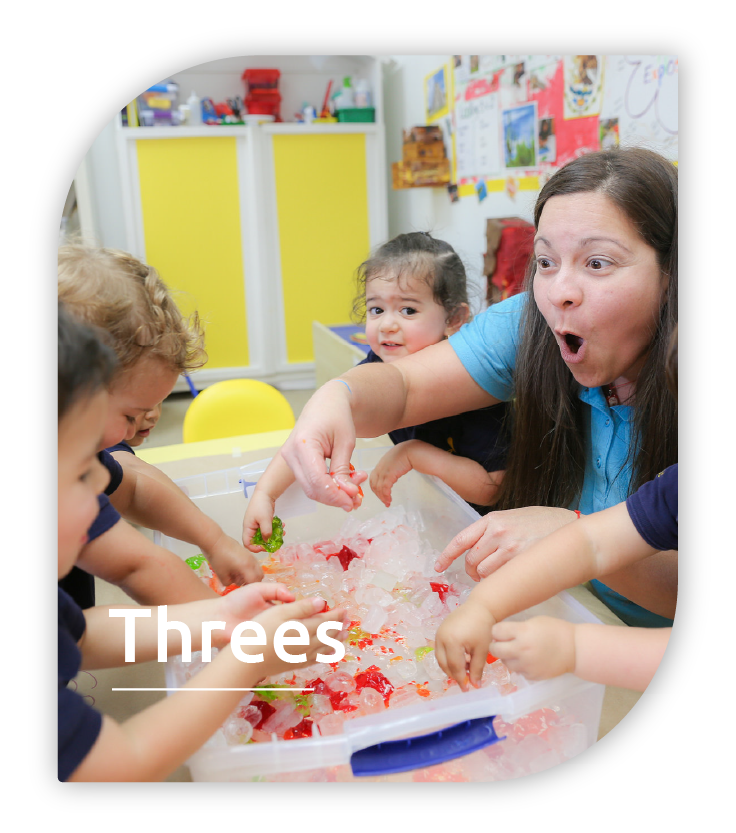
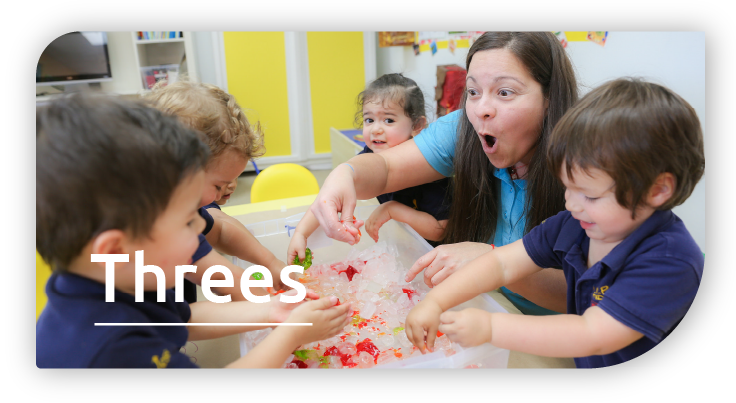
As two year olds turn three, there is a developmental shift from individual play (or parallel play) to shared play. This marks the beginning of an important mindset shift between two and three year olds.
Three year olds are active participants of our school community and are seen as global citizens capable of adding value to our world. As three year olds increase their capacity for independence and desire to contribute, our teachers focus on making them participant of classroom responsibilities, assign roles, and encourage teamwork. Daily group reflection about learning experiences is encouraged, in which teachers guide reflection through questions; children’s voices are heard and everyone participates in problem solving.
Through our monthly country and monthly unit children are exposed to the inmensity of our world, increasing their awareness of how others live and think. Through various Thinking Strategies, teachers guide children to find solutions to problems affecting the world or their direct communities.
An ultimate goal of our educational program is children capable of considering multiple perspectives and adding value wherever they go – children who are Citizens of the World – and 3 year olds are eager for the opportunity!
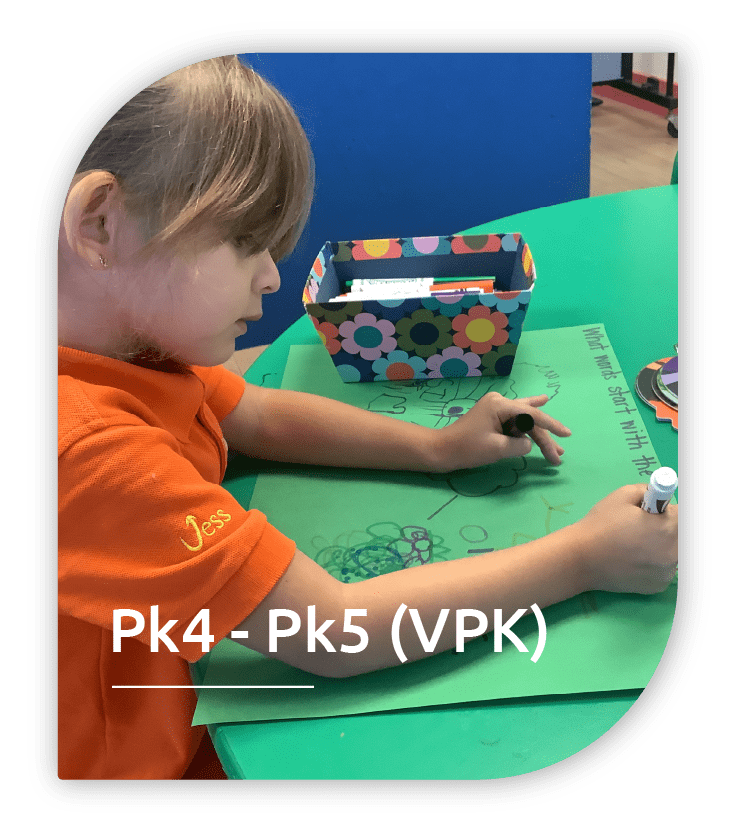
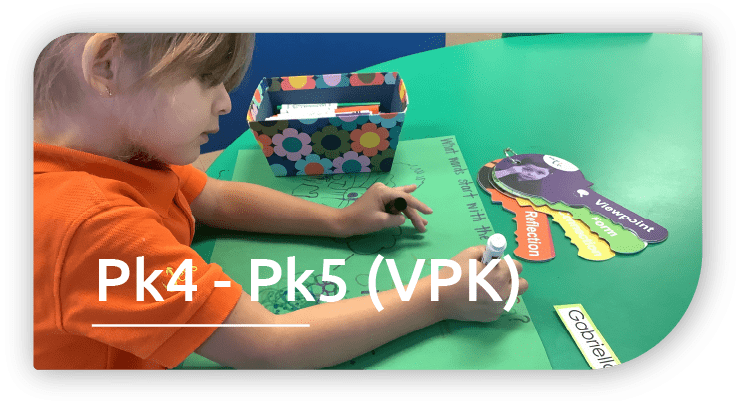
Creativity and Innovation are at the core of the VESS educational approach. Every moment and learning experience focuses on promoting these abilities, not only in the arts, but in science, mathematics, literacy, and every other developmental area. While our PK4-5 program focuses strongly in school-readiness skills (pre-reading and writing skills, and mathematics) you will never see a worksheet or photocopy in our classrooms. Instead, children write new endings to stories, document the findings of their classroom experiment in a bar graph, or complete a web map to express their thoughts.
Through our Artist of the Month, for example, we learn about artists’ stories, techniques, and how they use colors, shapes and lines uniquely to express their emotions, inspiring children to express through art, innovating their own art techniques and ways of telling us their stories.
Developing children’s citizenship, inquisitiveness, scientific thinking and learning autonomy (see previous sections) fosters innovation as children feel capable of contributing and make part of a community that fosters their ideas.
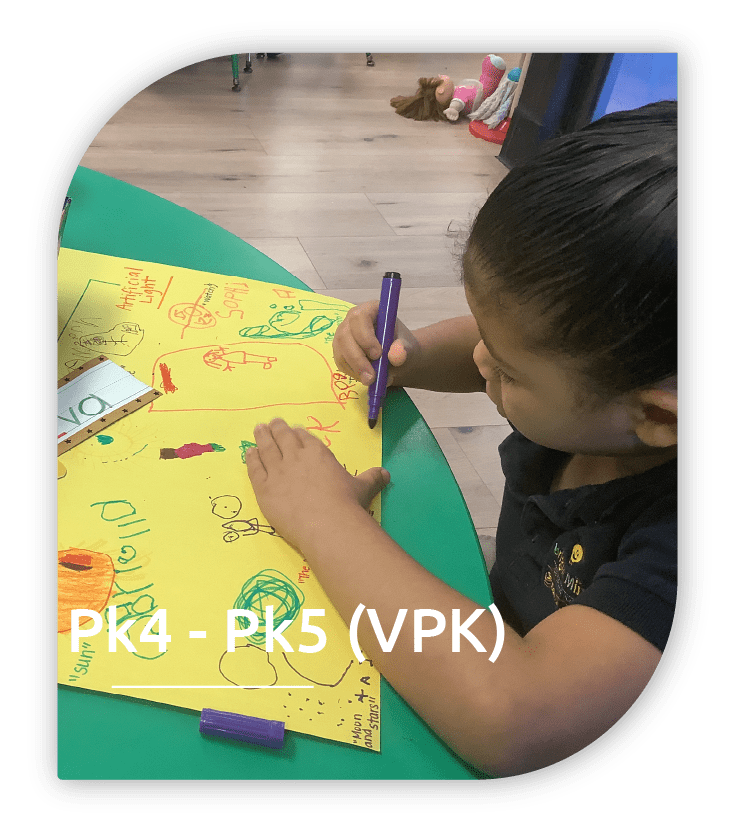
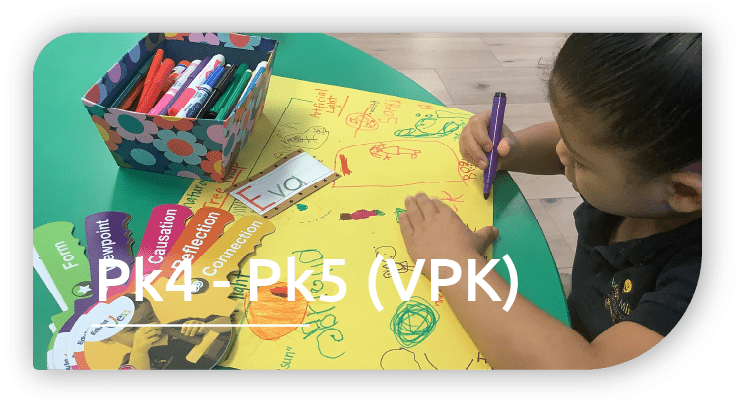
Our VESS curriculum teachers academic content and fosters development through strategies that promote higher level thinking skills.
Higher-level thinking refers to our ability to do certain mental processes more efficiently, making us better learners. This ability is fostered by developing what neuro-scientists have called Habits of Mind – a mental process that, with practice, we do routinely and naturally, turning it into a mental habit. The VESS curriculum develops 17 Habits of Mind in children. Some of these include Inquire, Innovate, Consider Perspectives, Manage Impulsivity, Reflect to Learn, Synthesize, Predict, amongst many others.
The first aspect of developing higher-level thinking is a DESIRE TO LEARN, so that our first goal is to foster excitement for learning in children.
Once children are excited to know more, our teachers use neuroscience-proven Thinking Strategies to ask deep questions and get children’s thinking going. Doing this all day, every day, creates higher-level thinking routines that lead to children’s development of our Habits of Mind, and a true ability to be better thinkers and learners.
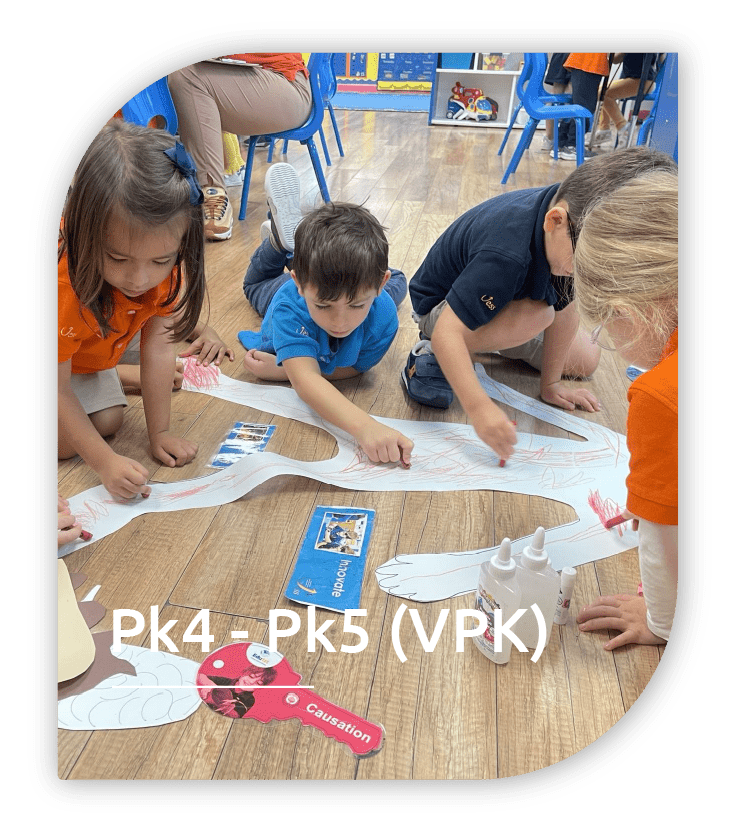
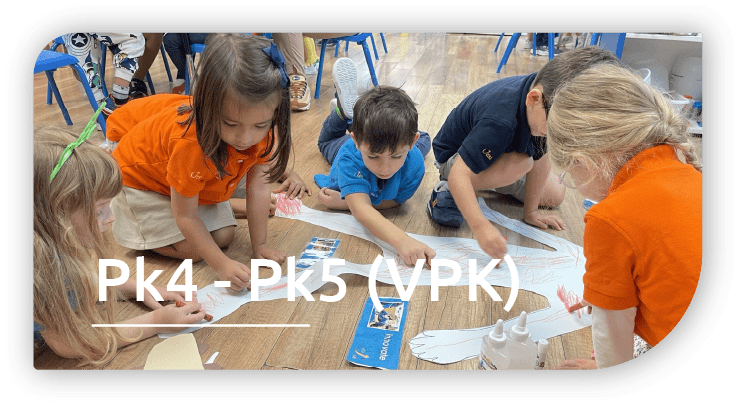
Teachers guide children to explore their questions about the world through a multitude of strategies that develop scientific and mathematical skills that far surpass school readiness standards. Scientific processes also teach children about risk taking, persistence, teamworkd, careful observation and objectivity. They promote literacy skills as children are eager to record their data and express what they have discovered. Some of the strategies used to foment scientific thinking include:
The Wheel of Wonder – an age-appropriate version of the scientific method that guides chuildren through a series of steps during an experiment: I wonder; I think; I try; I observe; I record; I discover.
Thinking Routines – such as our “X routine”, which asks children to compare materials through their senses; or “I See, I think, I wonder”, which guides children to reason with evidence about their observations.
Bar and Pie graphs – introduce children to the concepts of data analysis and data organization Weekly Cooking and STEM projects – that are planned based on questions that children ask in the classroom, or previously-expressed interests
by focusing on children’s interests and the questions they themselves pose, promoting science, experimentation, mathematics and deep thinking is simple, as children WANT to learn.
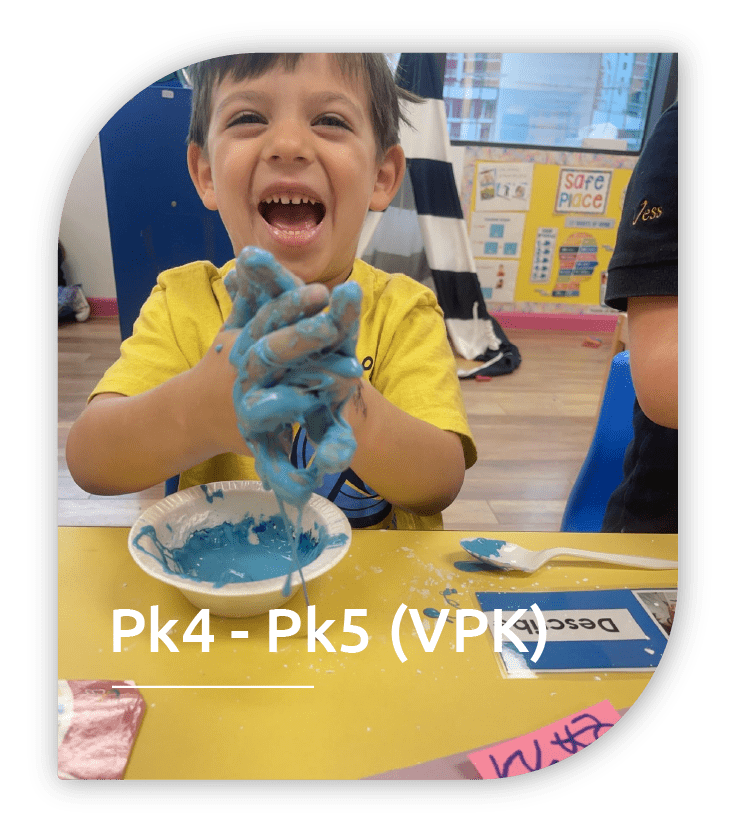
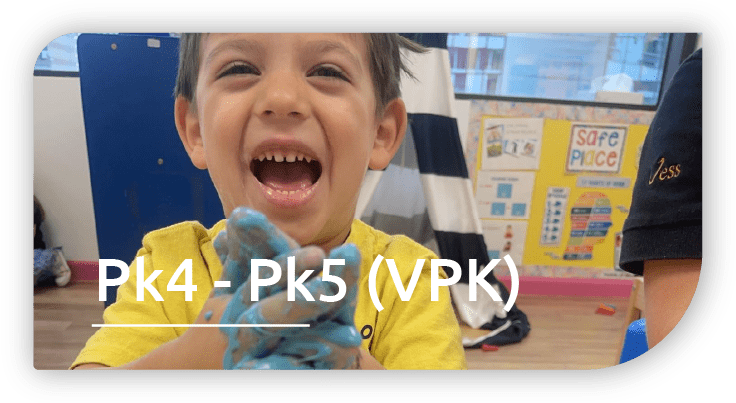
We consider all chidren as unique individuals with multiple developmental needs. While school readiness is a priority, we focus on developing the whole child to his or her unique potential. Each learning experience is based on our monthly artist, country and unit, and covers multiple developmental areas simultaneously, including mathematics, literacy, science, and art, but also emotional education, thinking skills, our VESS Values, and motor skills. Doing so presents academic areas to children how they appear in the real world, and allows children to understand how all academic areas relate.
Our Enrichment classes of Yoga, P.E. and Music further promote whole-child development through an expert in the area, and we offer Extracurricular classes in the areas of dance, sports and robotics towards this same purpose.
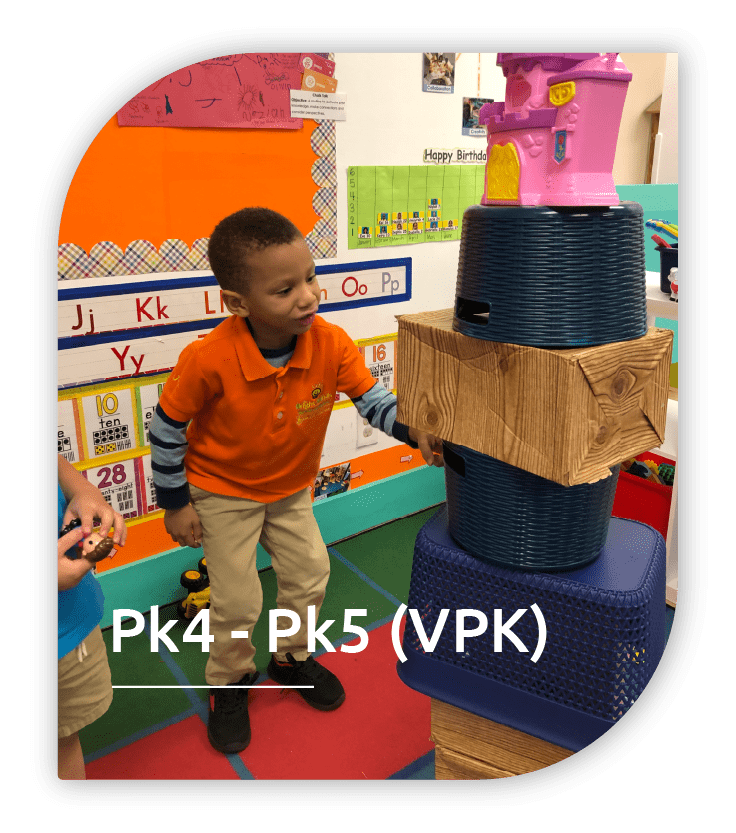
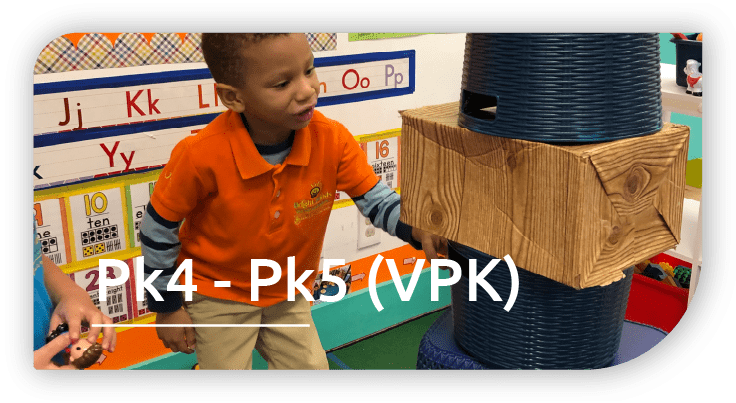
A key goal of our educational program is to nurture autonomous, life long learners, because learning autonomy has been proven to be a key determinant of academic and life success. Children under our PK4-5 program learn through asking, learn through doing, learn through thinking and learn with eagerness! This nurtures inquisitiveness – an intrinsic desire to explore, discover and learn – that is key to developing learning autonomy. Many strategies are present daily in the classroom towards this purpose. Some include:
• Children are active participants in the classroom and have a say about the topics to study
• The Surprise Factor – a neuroscience-proven strategy that focuses on presenting experiences to children in an unexpected way that invites them to explore it.
“Surprising a child with a fascinating opportunity to explore generates engagement and emotion, getting the brain ready to really comprehend”, explains Ms. Aura, Edu1st teacher of 15 years
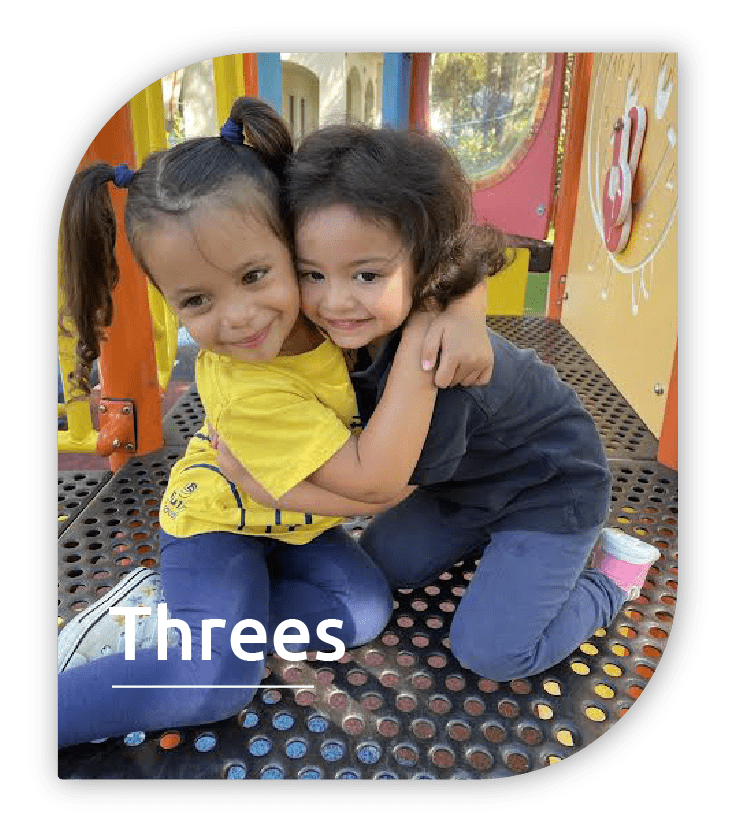
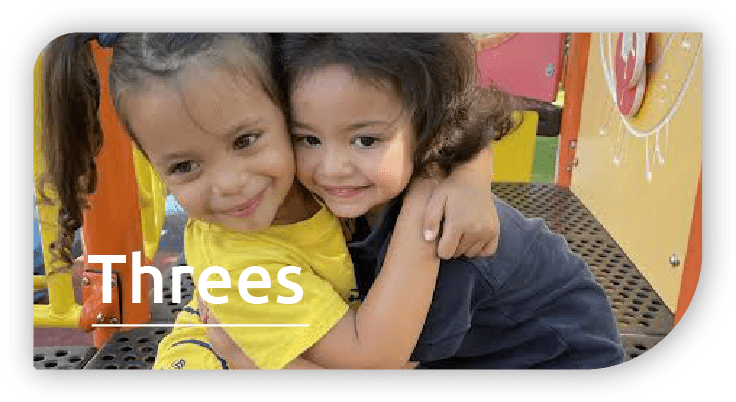
Learning autonomy refers to the skills and dispositions needed to be independent in one’s capacity to learn new things. It is seen by neuroscientists as a key determinant of life-long success and academic success.
the VESS educational approach focuses not only in learning academic content but in developing the learning autonomy to be efficient learners of future content, wherever they go.
As 3 year olds increase their capacity to express and understand complex information, they are also ready to understand their own thinking process (also known as metacognition)
Our educational program teaches academic content through Thinking Strategies that foster metacognition. These neuroscience-proven strategies include Thinking Routines, Concept Maps, and the Thinking Keys.
“Learning comes pretty easy when children understand how their thinking works” explains Ms. Julia, PK3 and PK4/5 teacher.
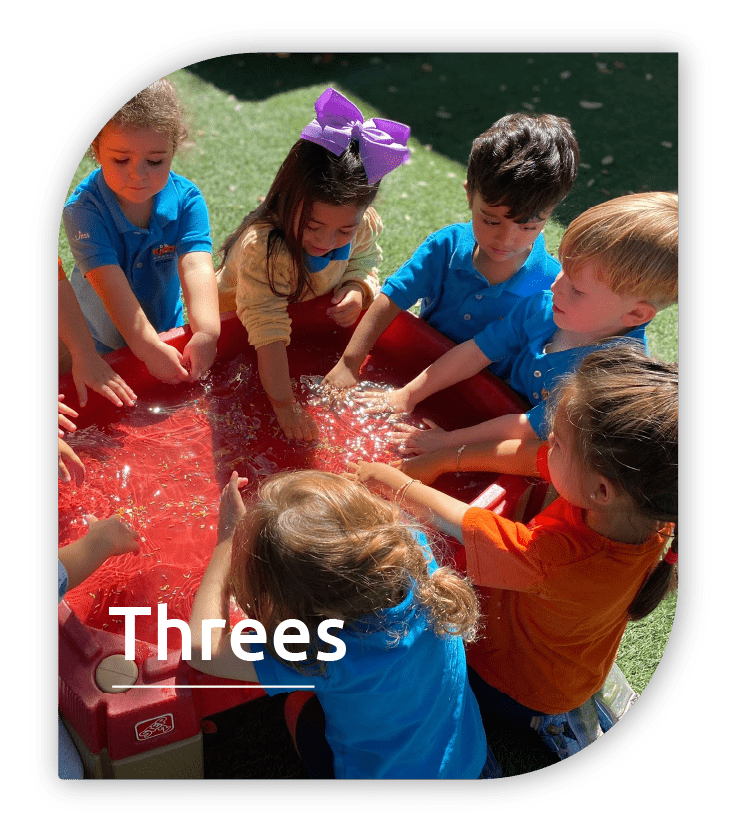
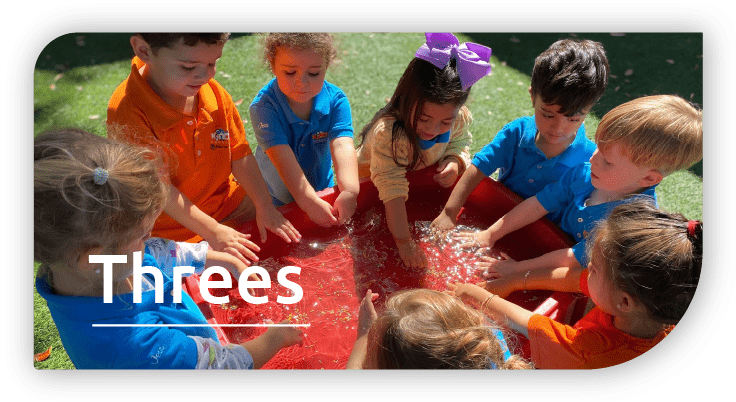
Creativity and Innovation are at the core of the VESS educational approach. Every moment and learning experience focuses on promoting these abilities, not only in the arts, but in science, mathematics, literacy, and every other developmental area. As three year olds focus more evidently in school-readiness skills (pre-reading and writing skills, and mathematics) you will never see a worksheet or photocopy in our classrooms. Instead, children write new endings to stories, document the findings of their classroom experiment in a bar graph, or complete a web map to express their thoughts.
Through our Artist of the Month, children learn about artists’ stories, techniques, and how they use colors, shapes and lines uniquely to express their emotions, inspiring children to express through art and innovate their own art techniques.
Developing children’s citizenship, inquisitiveness, scientific thinking and learning autonomy (see previous sections) fosters innovation as children feel capable of contributing and make part of a community that fosters their ideas.
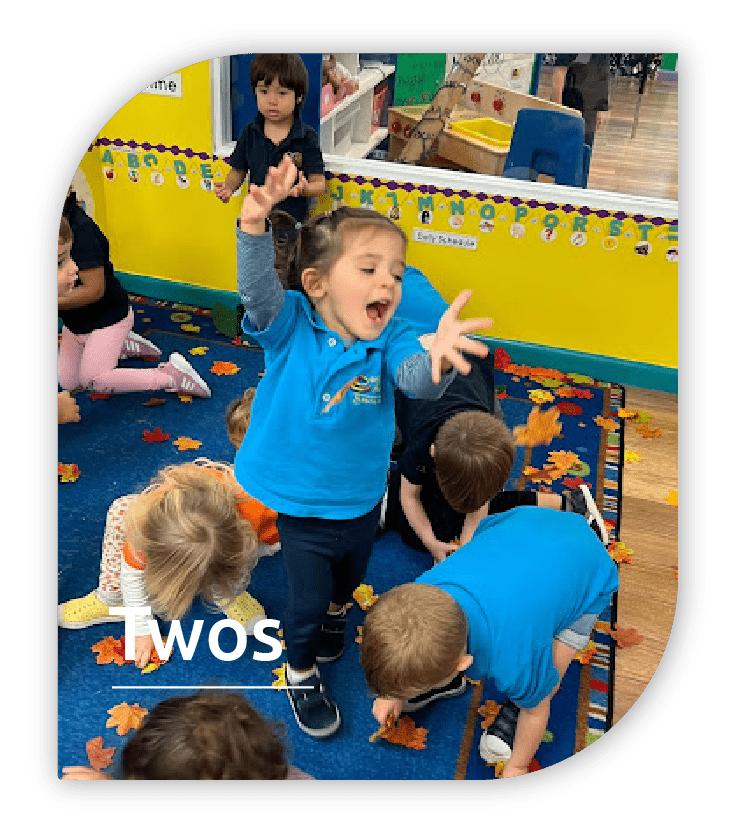
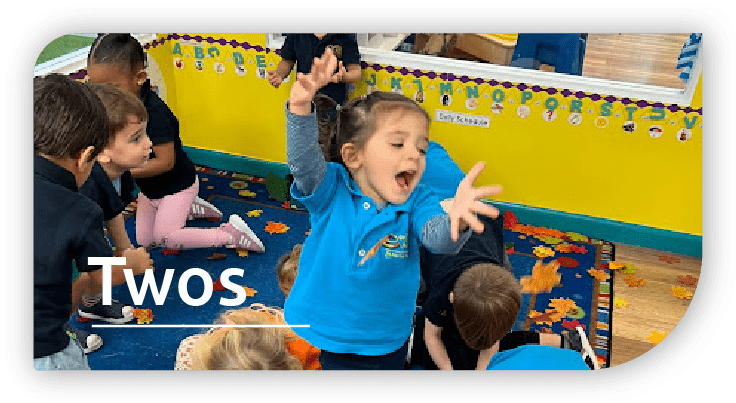
Creativity and Innovation are at the core of the VESS educational approach. Every moment and learning experience focuses on promoting these abilities, not only in the arts, but in science, mathematics, literacy, and every other developmental area.Through our Artist of the Month, for example, we learn about artists’ stories, techniques, and how they use colors, shapes and lines uniquely to express their emotions, inspiring children to express through art and innovate their own art techniques.
In our classrooms, children write new endings to stories, participate in finding new solutions to everyday problems, have access throughout the classroom to art and science materials that they can create with, and are heard when proposing new ideas. This autonomy in their learning process fosters creativity and innovation.
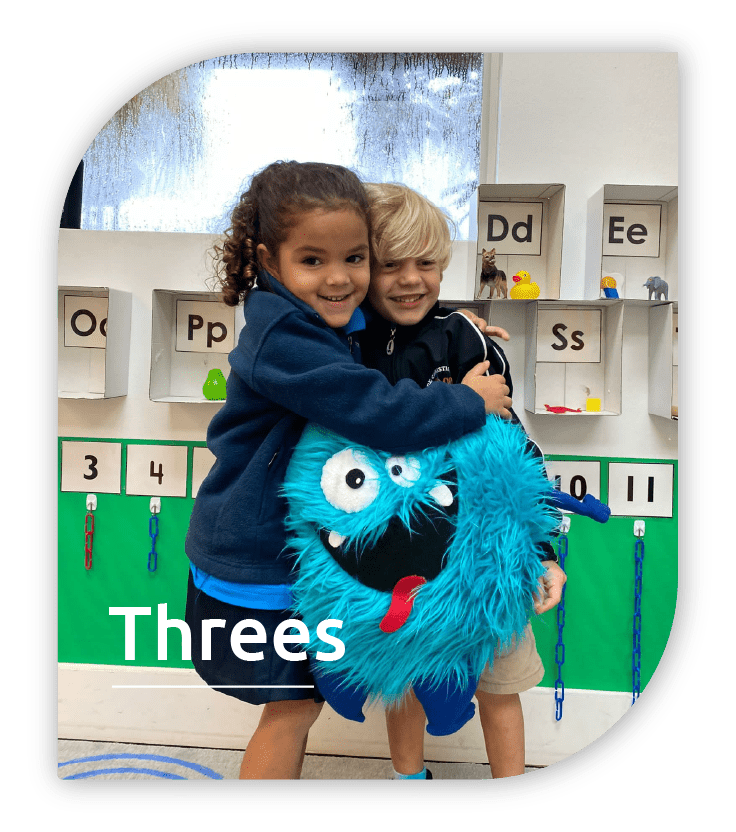
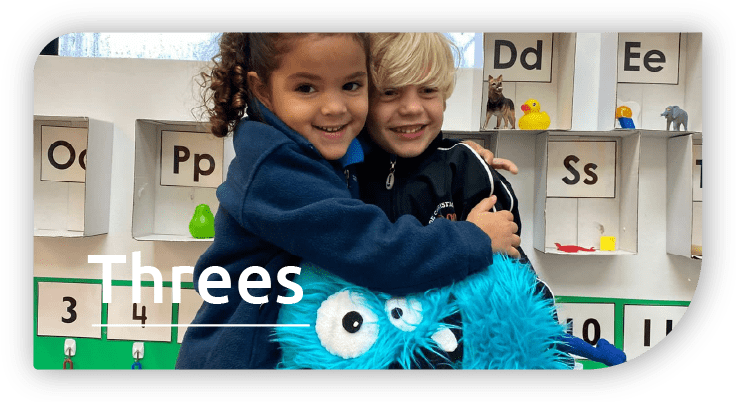
Our VESS curriculum teachers academic content and fosters development through strategies that promote higher level thinking skills.
Higher-level thinking refers to our ability to do certain mental processes more efficiently, making us better learners. This ability is fostered by developing what neuro-scientists have called Habits of Mind – a mental process that, with practice, we do routinely and naturally, turning it into a mental habit. The VESS curriculum develops 17 Habits of Mind in children. Some of these include Inquire, Innovate, Consider Perspectives, Manage Impulsivity, Reflect to Learn, Synthesize, Predict, amongst many others.
The first aspect of developing higher-level thinking is a DESIRE TO LEARN, so that our first goal is to foster excitement for learning in children.
Once children are excited to know more, our teachers use neuroscience-proven Thinking Strategies to ask deep questions and get children’s thinking going. Doing this all day, every day, creates higher-level thinking routines that lead to children’s development of our Habits of Mind, and a true ability to be better thinkers and learners.
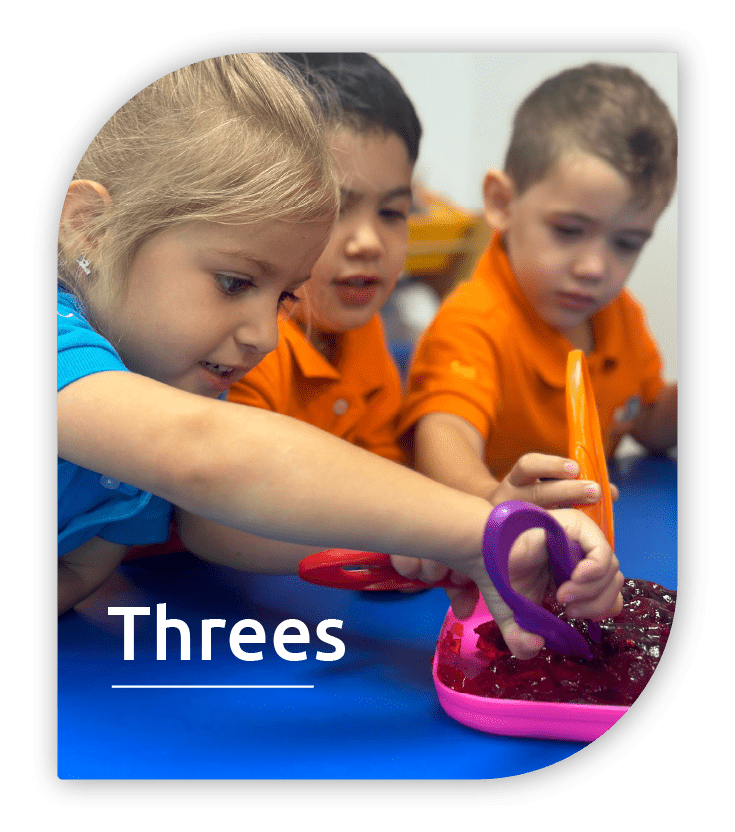
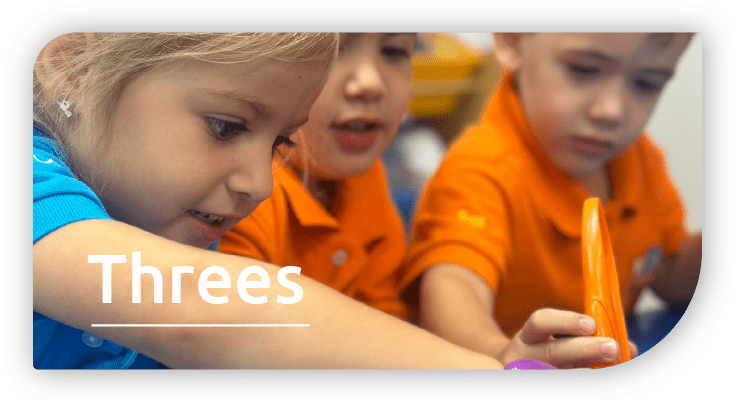
At 3 years of age, children increase their capacity to express verbally and pose questions about the world around them. What an exciting time! With a school environment that values children’s questions about the world comes an opportunity to promote a scientific mindset. Teachers guide children to explore their questions through a multitude of strategies that develop scientific and mathematical skills that far surpass school readiness standards. Scientific processes also teach children about risk taking, persistence, teamwork, careful observation, and objectivity. They also promote literacy skills, as children are eager to record their data and what they have discovered. Some of our strategies used include:
• The Wheel of Wonder – an age-appropriate version of the scientific method that guides chuildren through a series of steps during an experiment: I wonder; I think; I try; I observe; I record; I discover.
• Thinking Routines – such as our “X routine”, which asks children to compare materials through their senses; or “I See, I think, I wonder”, which guides children to reason with evidence about their observations.
• Bar and Pie graphs – introduce children to the concepts of data analysis and data organization
• Weekly Cooking and STEM projects – that are planned based on questions that children ask in the classroom, or previously-expressed interests
by focusing on children’s interests, promoting science, experimentation, mathematics and deep thinking is simple, as children WANT to learn.
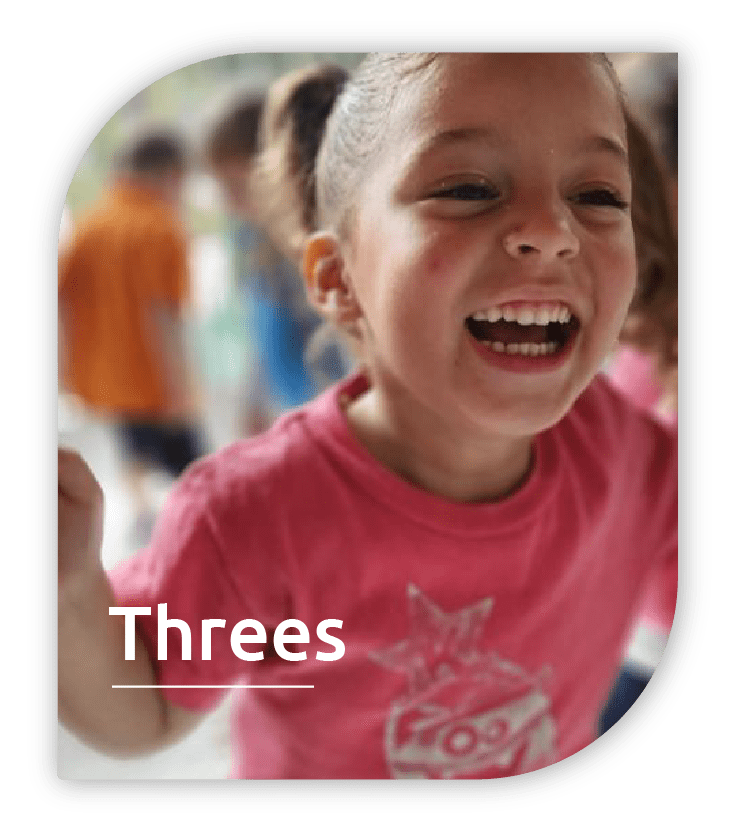
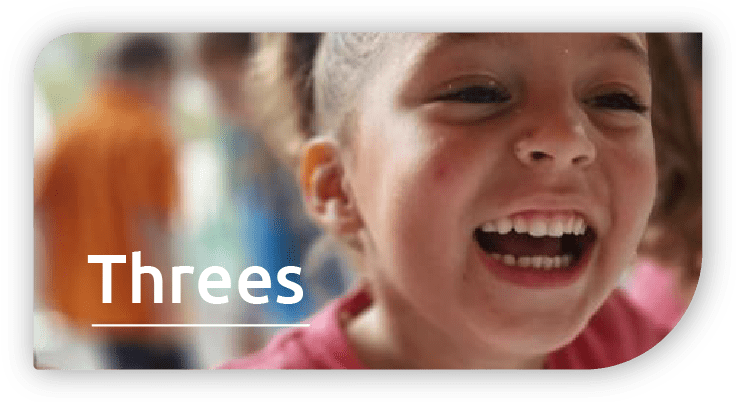
We consider all chidren as unique individuals with multiple developmental needs. We focus on developing the whole child to his or her unique potential. Each learning experience is based on our monthly artist, country and unit, and covers multiple developmental areas simultaneously, including mathematics, literacy, science, and art, but also emotional education, thinking skills, our VESS Values, and motor skills. Doing so presents these areas to children how they appear in the real world, and allows them to understand how all areas relate.
Our Enrichment classes of Yoga, P.E. and Music further promote whole-child development through an expert in the area, and we offer Extracurricular classes in the areas of dance, sports and robotics towards this same purpose.
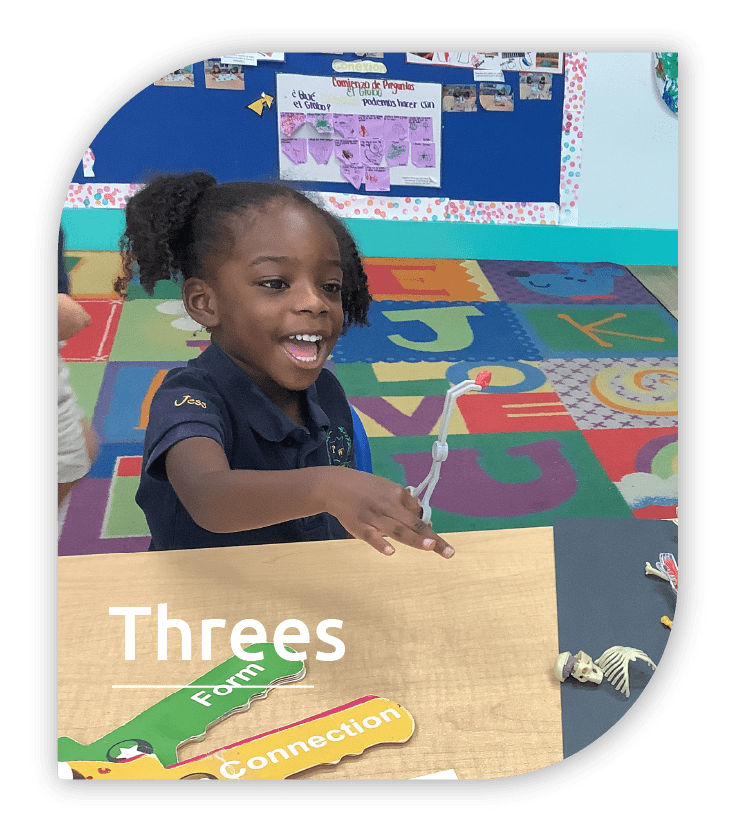
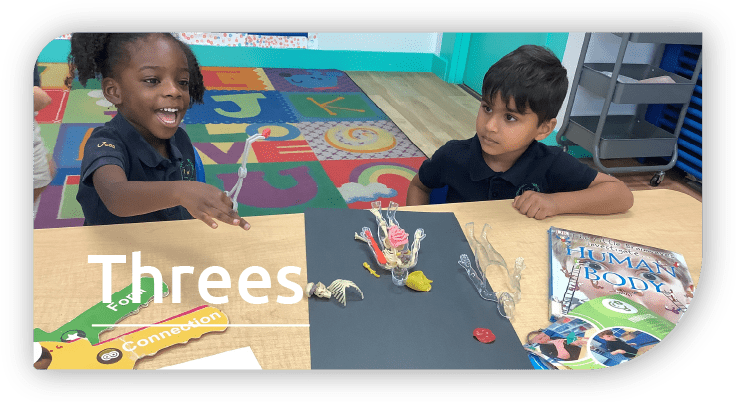
A key goal of our educational program is to nurture autonomous, life long learners, because learning autonomy has been proven to be a key determinant of life success. Learning autonomy starts with sparking curiosity and inquisitiveness – an intrinsic desire to explore, discover and learn. How do we promote inquisitiveness?
• 3 year olds are active participants in the classroom and have a say about the topics to explore
• The Surprise Factor – a neuroscience-proven strategy that focuses on presenting experiences to children in an unexpected way that invites them to want to explore
• Respecting children’s process and celebrating risk taking: we encourage children to explore at their own pace and praise trying something hard or new.
“Surprising a child with a fascinating opportunity to explore generates engagement and emotion, getting the brain ready to really comprehend”, explains Ms. Aura, Edu1st PK3 teacher of 15 years
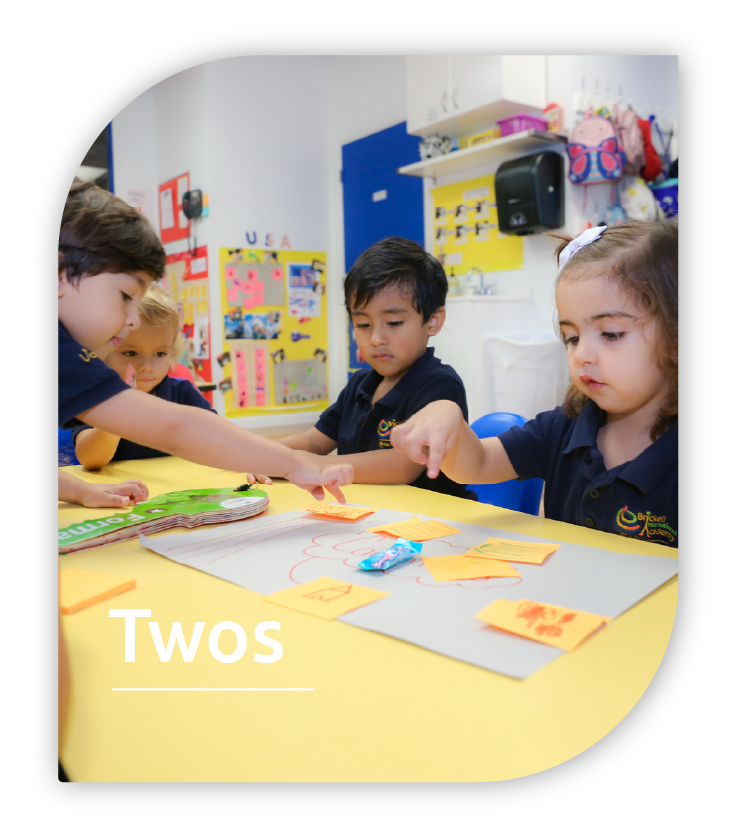
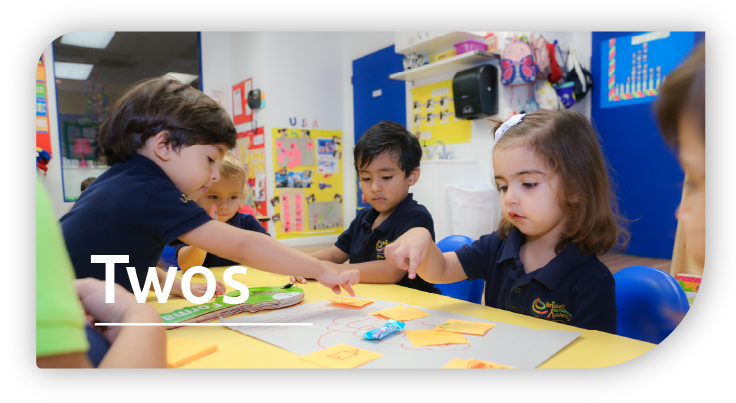
Learning autonomy refers to the skills and dispositions needed to be independent in one’s capacity to learn new things. It is seen by neuroscientists as a key determinant of life-long success and academic success. the VESS educational approach focuses on developing children’s learning autonomy to be efficient learners for life.
We focus first on nurturing children’s love for learning – the first step for becoming an autonomous learner – through making learning meaningful, surprising and fun We use advanced thinking language in our daily interactions to promote higher-level thinking and embeed this language in children’s thinking process
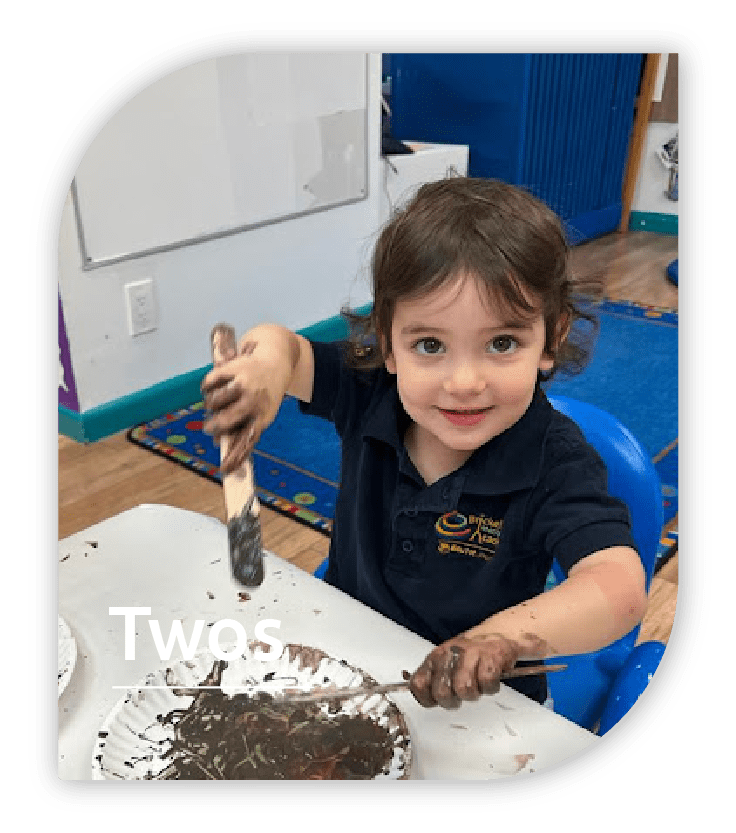
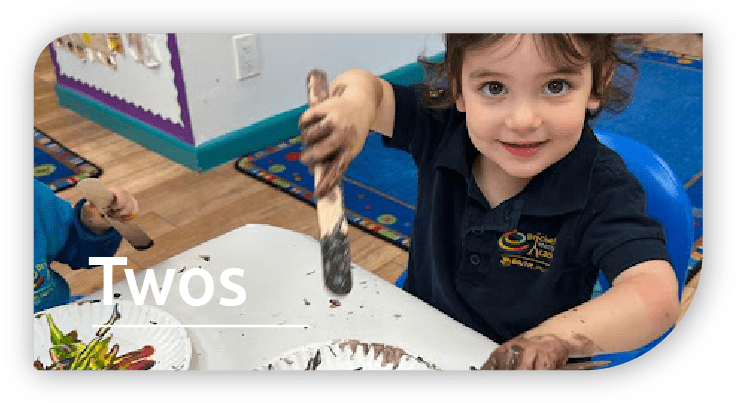
“It is amazing to witness how children go from playing by themselves at the beginning of the year, to discussing amongst themselves how to complete an activity together by the end,” – Ms. Daniela, Edu1st. Two’s teacher of 10 years
Two year olds in our school are seen as active participants of our community and global citizens. our teachers focus on making them participant of classroom responsibilities, assign roles, and encourage teamwork – whether it’s cleaning tables after lunch or passing out the placemats, we learn about community through our daily interactions as collaborators.
Our monthly country and monthly unit expose children to the inmensity of our world, increasing their awareness of how others live and think, as teachers guide them to find solutions to problems affecting the world or their direct communities.
An ultimate goal of our educational program is children capable of considering multiple perspectives and adding value wherever they go!
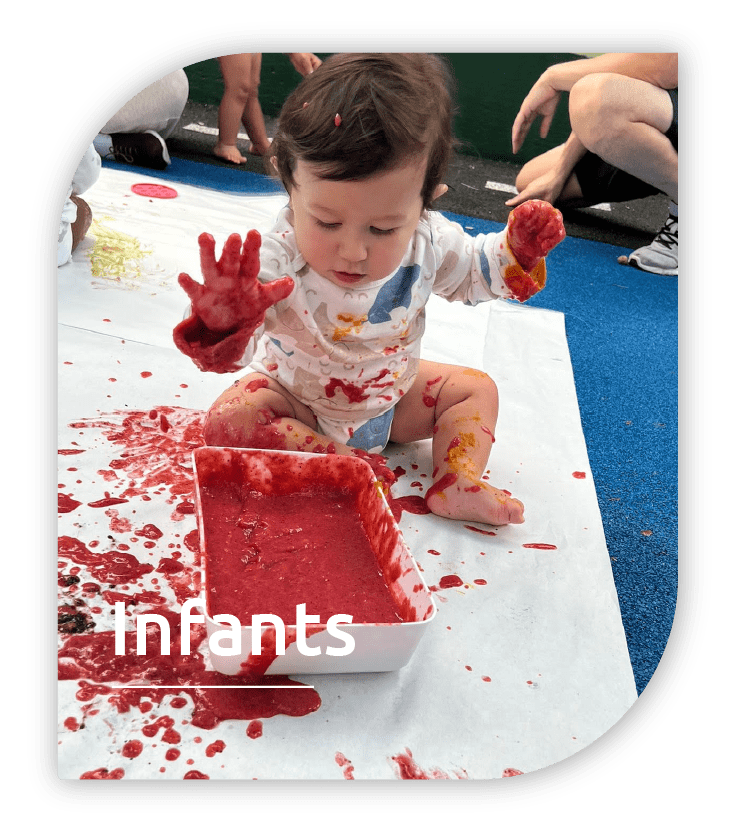
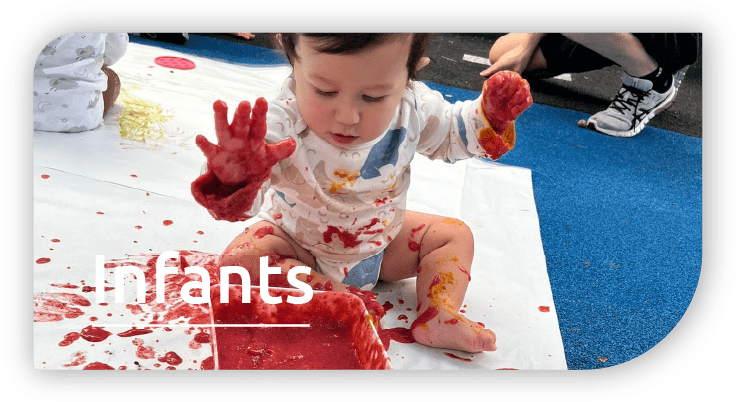
A key goal of our educational program is to nurture autonomous, life long learners, because learning autonomy has been proven to be a key determinant of life success. Learning autonomy starts with sparking curiosity and inquisitiveness, from birth! How do we promote inquisitiveness in babies?
• We respond to babies‘ expressed needs and desires, always, including during exploratory activities – teachers observe and listen carefully, adapting their planned experiences to their preferences
• The Surprise Factor – a neuroscience-proven strategy that focuses on presenting experiences to children in an unexpected and exciting way that invites them to want to explore
• Respecting babies’s process and celebrating risk taking: we encourage babies to explore at their own pace, plan with their preferences in mind and praise trying something hard or new.
“Surprising a child with a fascinating opportunity to explore generates engagement and emotion, getting the brain ready to really comprehend”, explains Ms. Aura, Edu1st teacher of 15 years